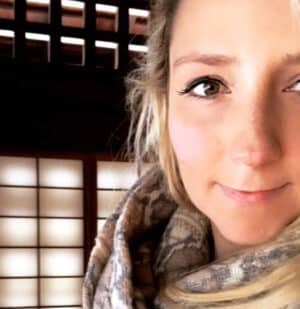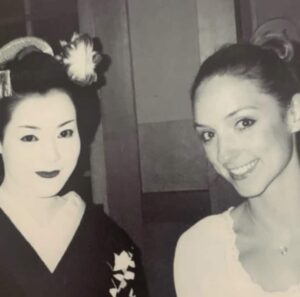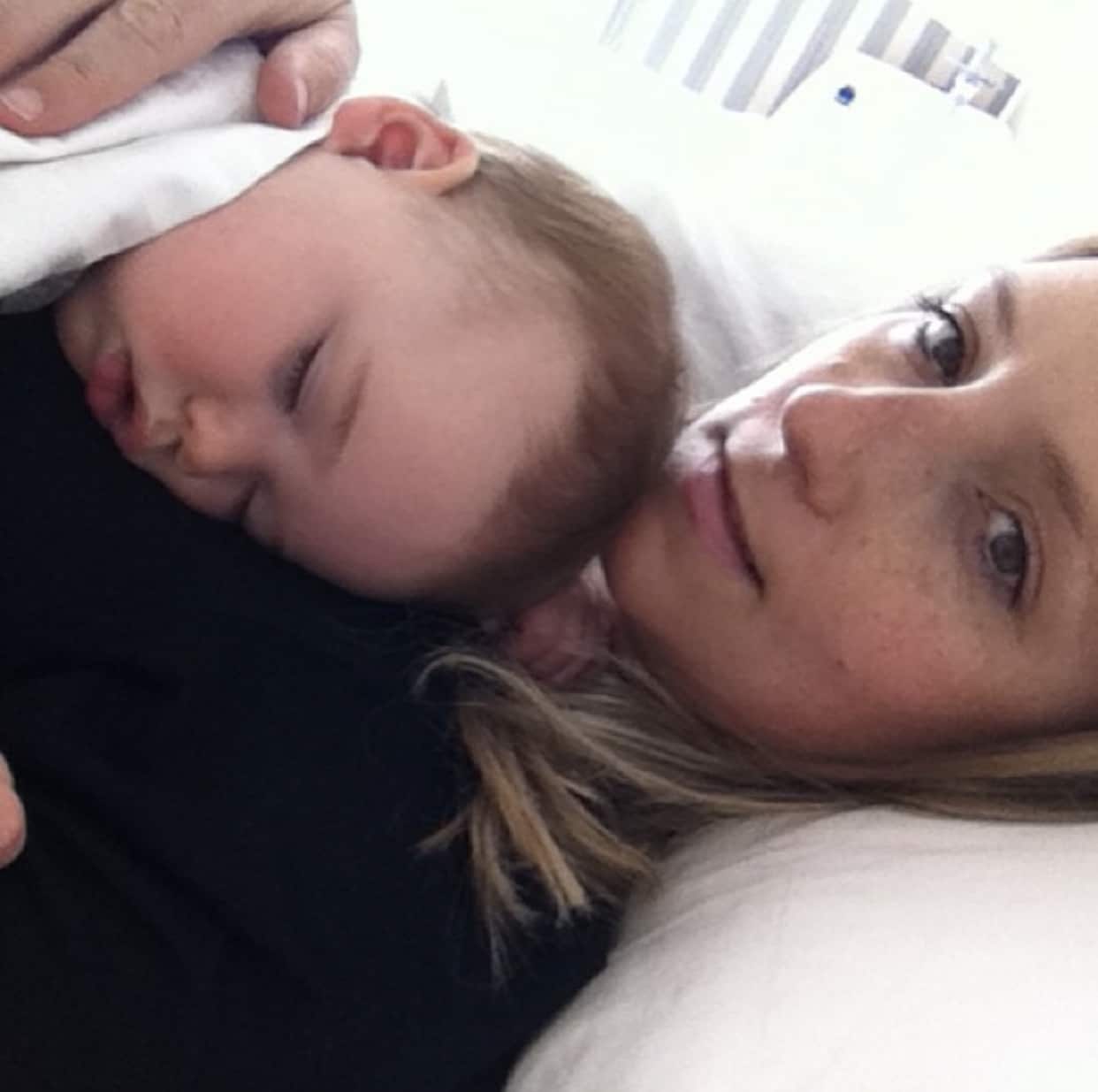

I’m a worrier.
My husband is not a worrier.
Thank god that we managed to find one another and get married as, between us (my 3am concerns that the kids might get into a fight and be hurt in 15 years time + his chilled approach) we have found a balance that means that our kids are still laughing, happy, bouncing and bonking their heads without too many trips to the Japanese emergency room (fyi – you do know that you need to call ahead before you visit a Japanese ER, right? I have a whole blog post on what to do in a medical emergency in Japan here.
But actually, being a bit more serious here, it’s funny the things that you worry about when you relocate overseas with small children.
I do promise I’m a fun person and a good friend and am not always squished in the corner in the fetal position – but add kiddies into the mix and I’m ready to walk on fire for those little monkeys.
My youngest was only a tiny bit older than 4 months old and the ‘big’ one was only a few months past her second birthday when we moved to Tokyo.
I’d lived in Japan for 10 years plus without kiddies but … as you can imagine… there are SOOOO many more things to consider when little humans are involved.
I did find the first few weeks trickier than I imagined them to be but we, as you can see from my blog, have settled in so nicely now and we are having a spectacular time. So much so that I wrote about all of the reasons I believe everyone should take their kiddies to Japan – even just for a holiday.
But it’s funny for me to think about the things that concerned me the most at the start….
Looking back, they don’t seem like a big deal at all, but at the time, I would have burst into tears if you’d told me that – so I can’t deny that they were real concerns for me.
If you’d like a chance to experience “living in Japan” before actually living in Japan – I recommend a short stay at Tokyo Family Stays property Koenji House.
So these are some of the things I worried about and how & why I no longer am so concerned.
( These are in no order of importance or status… just from my roughly sketched out list.).
* Please note that, as we are currently an expat family in Japan, we have had some more guidance concerning our international relocation – from Japan -> to South Africa-> to Australia -> to Japan ….but I do know what it is like to relocate to Japan without any extra help and like to think that these personal tips and hurdles might be useful for everyone. I’m also more than happy to share information that has landed in my lap. I have also relocated to Japan as an exchange student, an English teacher/night school student and as an employee of a Japanese company.
I know that each ‘season’ requires different kinds of concerns and preparation. Still, I hope that might help even a little bit?*
Will I be able to stay on schedule with my kid(s immunizations?
My big girl was immunized in Australia in accordance with the national immunization schedule right up until we moved here. I was really worried that, with a different system in place here, I was likely to miss a shot along the way and the kids were going to be susceptible to more health risks (ie. I felt way more responsibility when it came to my children’s health because I would be the person in charge of every element.)
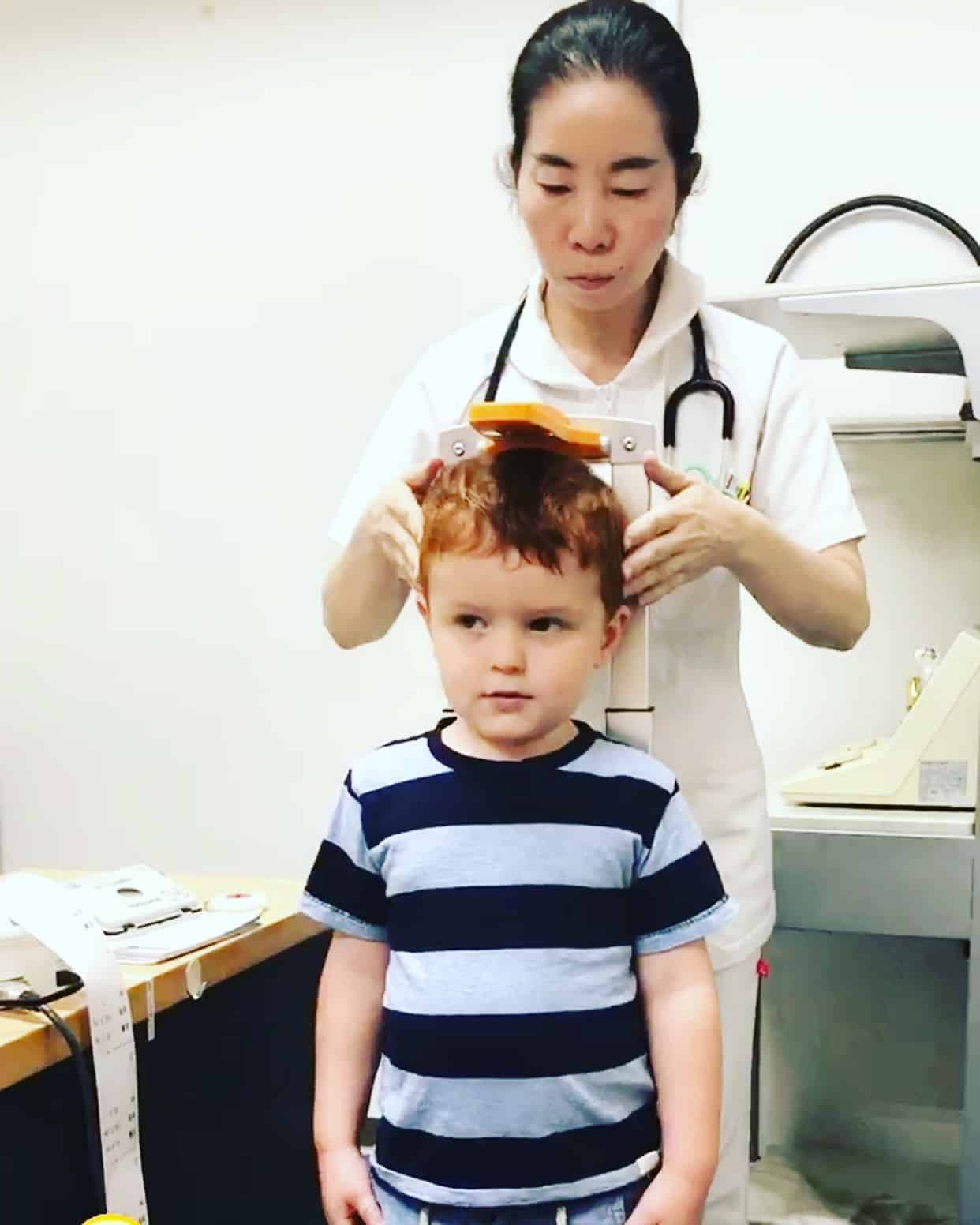
We tried out a few English speaking doctors until I found a doctor from the UK who was happy for me to bring in the kid’s little health books and match exactly what was on the Aussie immunization schedule and throw in any extras that he thought would be needed too.
We paid for this ourselves (many of the same shots are available on the Japanese public system but …like I said… I was really concerned about this one so it was something we would rather pay for – just for the peace of mind. It would have been possible to also match up the Japanese options and pay for the extras too.
Here are a list of English speaking hospitals and clinics in Tokyo.
*Please note that I’m not in any position to hand out family medical advice but am just sharing what worked for us.

Breastfeeding
This might sound like a silly thing to worry about but …you never know what is ok in different countries, right?
I’d lived in Japan before but… before you have kids, you never really think about that kind of stuff. I was up to date on the bars, cute cafes and best places to shop – but places to breastfeed wasn’t really on my radar.

It was particularly important to me to continue to breastfeed but I’m also not great at staying cooped up in my house in order to do so.
The short answer? Breastfeeding is very, very much welcomed in Japan and has been no stress at all. I’ve experienced such kindness and acceptance here.
I actually wrote all about it in a blog post (here) where I speak purely about my breastfeeding journey in Japan.
How will I set ourselves up for rainy season… actually… screw that… how will we set ourselves up for daily life full stop?
We moved here in rainy season so maybe that’s why it felt extra tricky.
I was concerned as to how we would not go completely crazy – especially when my husband was working late or traveling overseas for work.
I didn’t believe that it would really rain for that many days in a row. It did.
I’ve lived in Japan for numerous rainy seasons but the logistics (and craziness) with kids is next level.
The first thing I’m glad we did was find our local Jidokan.
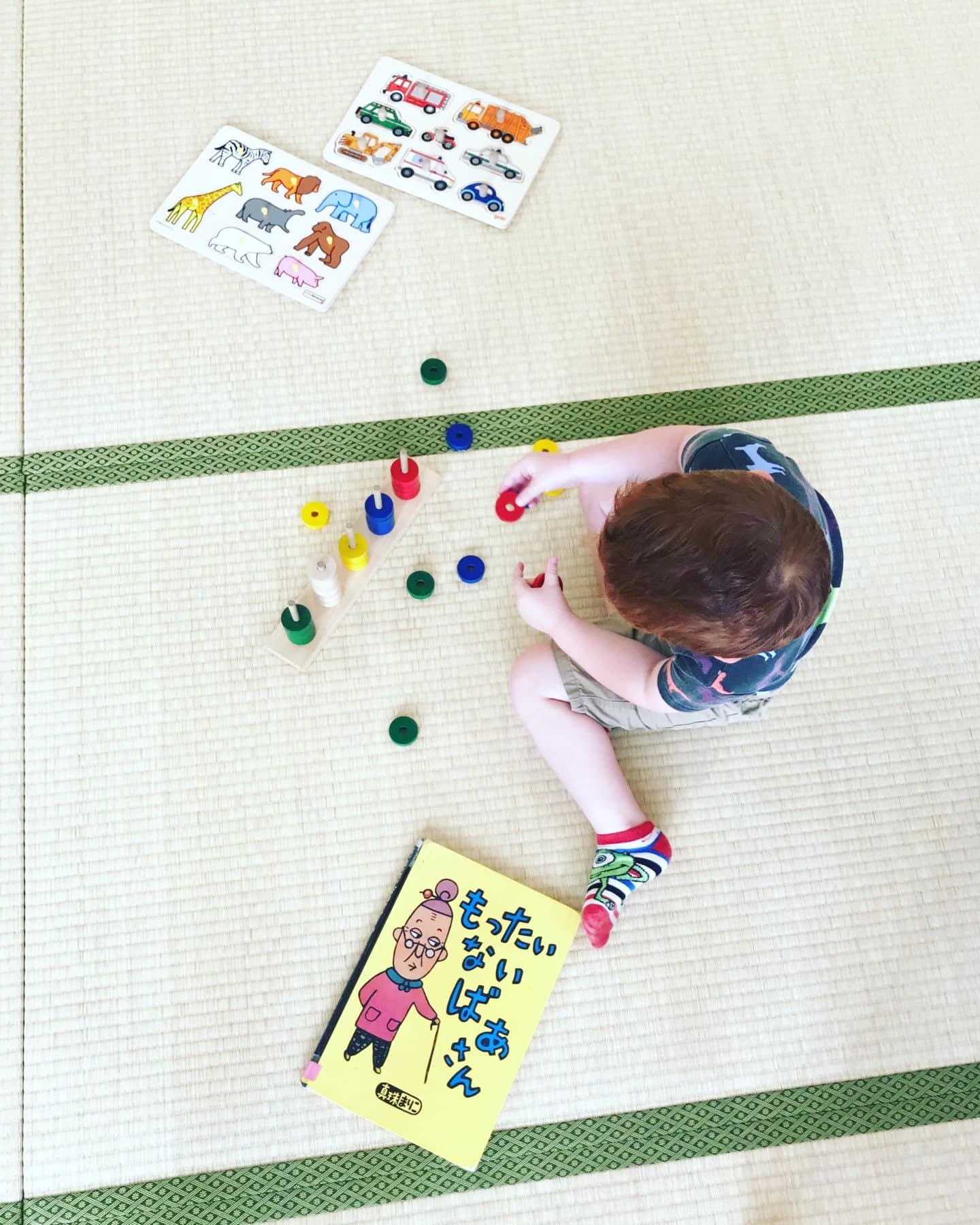
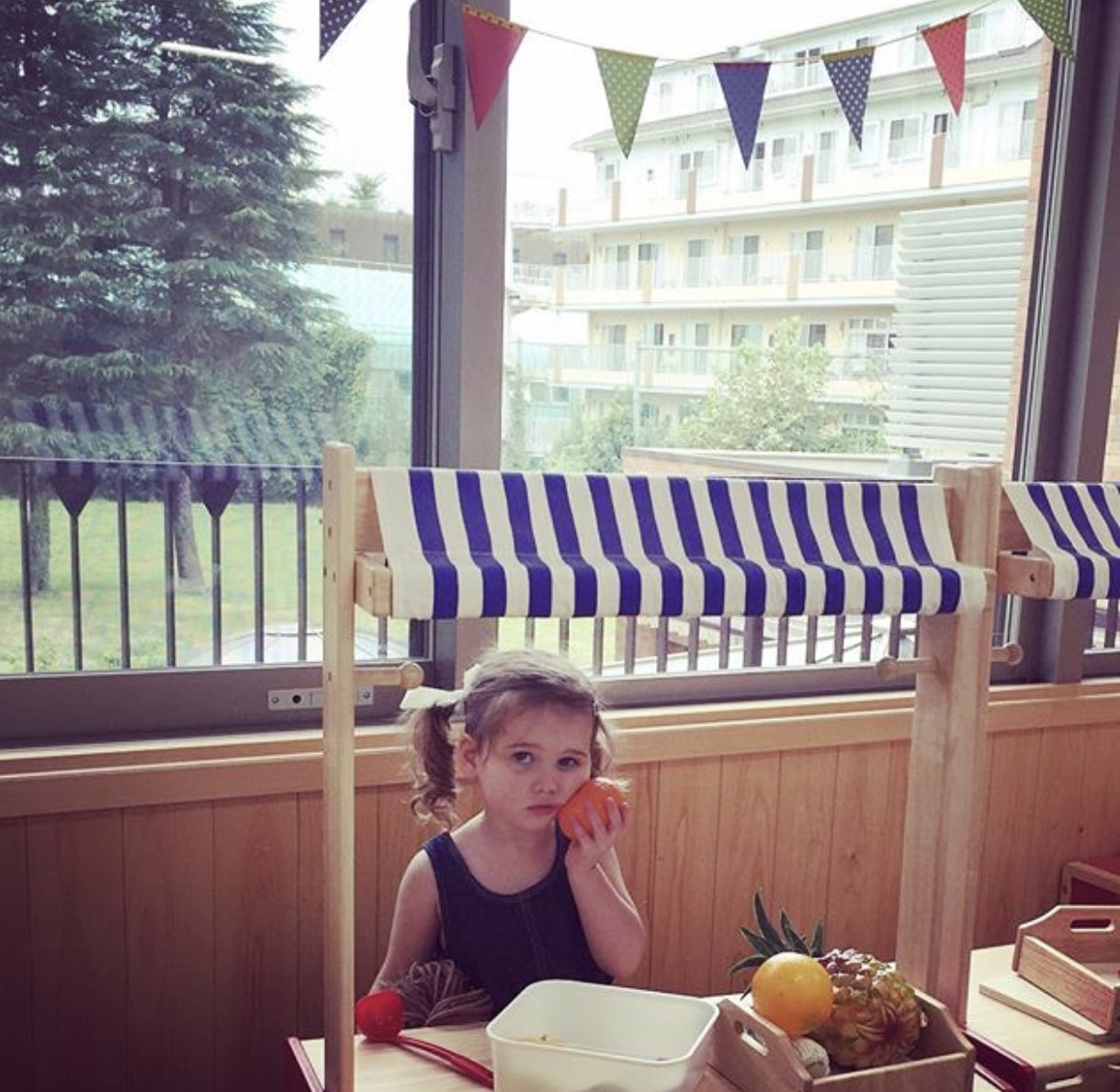
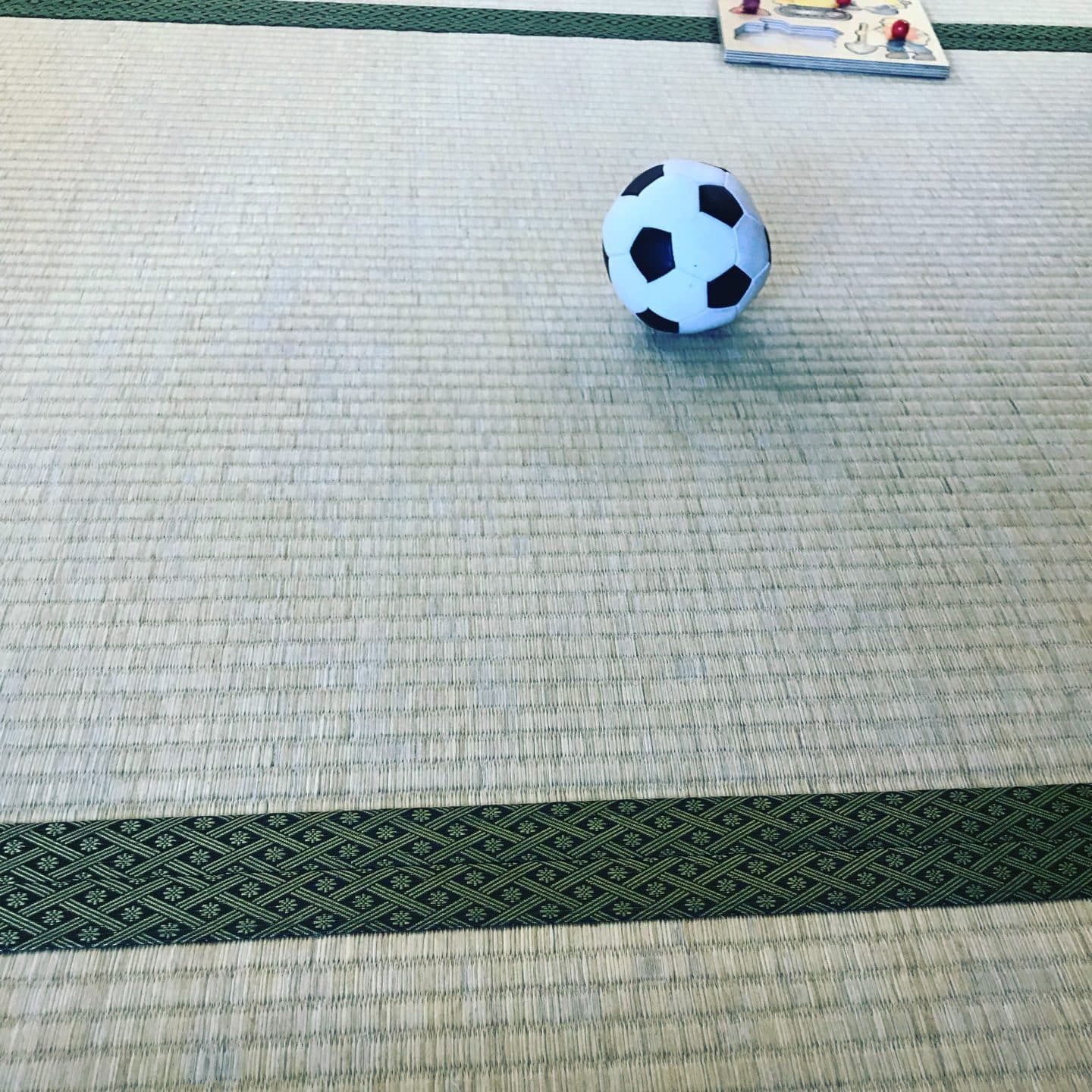
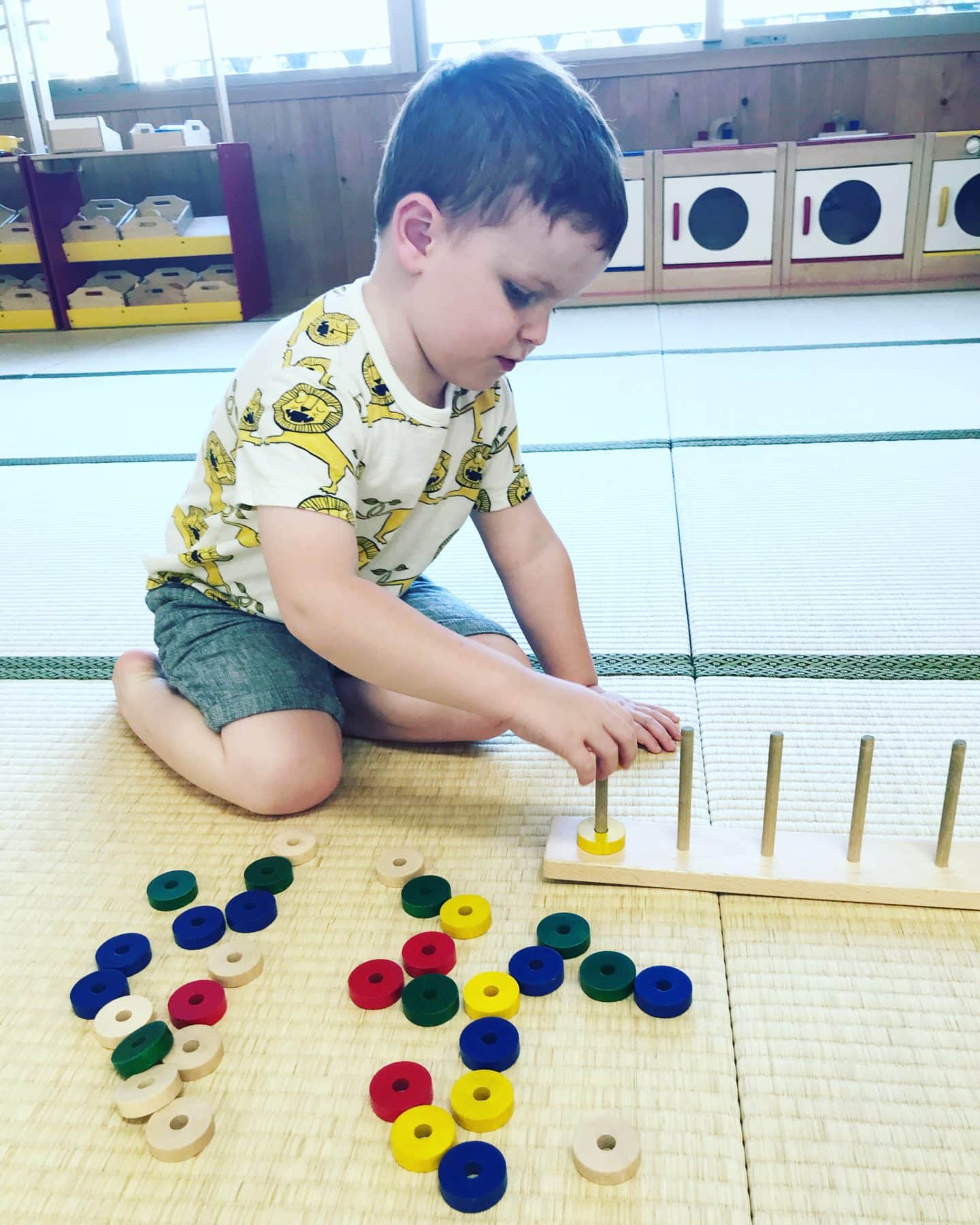
Jidokan is a community centre provided by the local ward for residents in that area. They have a play area for kids and often run workshops or storytimes (mostly in Japanese but you might get lucky or you could offer to read a story from time to time. ) During our first rainy season and summer our little guy learned how to crawl and sit up in our local jidokan. It was also a life saver for keeping my 2 year old entertained while I fed baby.
There are books and toys and the chances to make friends with other tired parents. I made my first few friends here.
I then found our local supermarket , international supermarket and fruit and vegetable shop. I always do the main big shop on the weekends when my husband is around and then I top up with convenience stores and my closest stores for additional things that might need a top-up.
If you have a car, you can drive to Costco for a big regular shop (there are a few outside of Tokyo). – or if you take the train? Then take a suitcase and fill it up! That’s what I used to do when I was a student!
Don’t forget to find out which of your local shops home deliver (unfortunately there aren’t too many great options in Japan that participate in full online shopping but what I tend to do is go and shop and then get them to deliver it to my house. ) Most places will as long as you spend a certain amount – for eg. my fruit and veg shop delivers if you spend more than 2500 yen and then my supermarket if I spend more than 5000.
This is how the locals mostly do a big shop for their family. (You do need to confirm that you are in the store’s delivery zone – of course. ) Note that same day delivery cut-offs are often around 2pm.
In my experience, most supermarkets deliver for purchases over 5000 yen (Maruetsu delivers for free for only 1800 yen +)
当日配達は可能ですか? Is same-day delivery possible?
配達料金はいくらですか? How much does delivery cost?
When you’re searching around for your closest large-ish supermarkets some of the brands you may want to look out for are Peacock, Marunetsu, Life and Daiei.
Note that , in Japan, many of the drugstores stock the largest selection of nappies, baby food and snacks and nappies. These guys also deliver if you spend the minimal amount.
The next thing we did to help us survive rainy season ( and I think you might need to do some similar things if you’re living here during the height of Summer)was set up our house – and generally just make it more of a fun and practical place to be for longer periods of time than normal.
With little kids, the best thing I do every rainy season is purchase an inflatable pool on Amazon Japan. Then they can still cool down and get a wriggle without leaving the house. In fact I think it was our first piece of “furniture” I purchased when we moved to Tokyo!! And I just keep repurchasing new pools when the old ones get bitten pass their used by date.
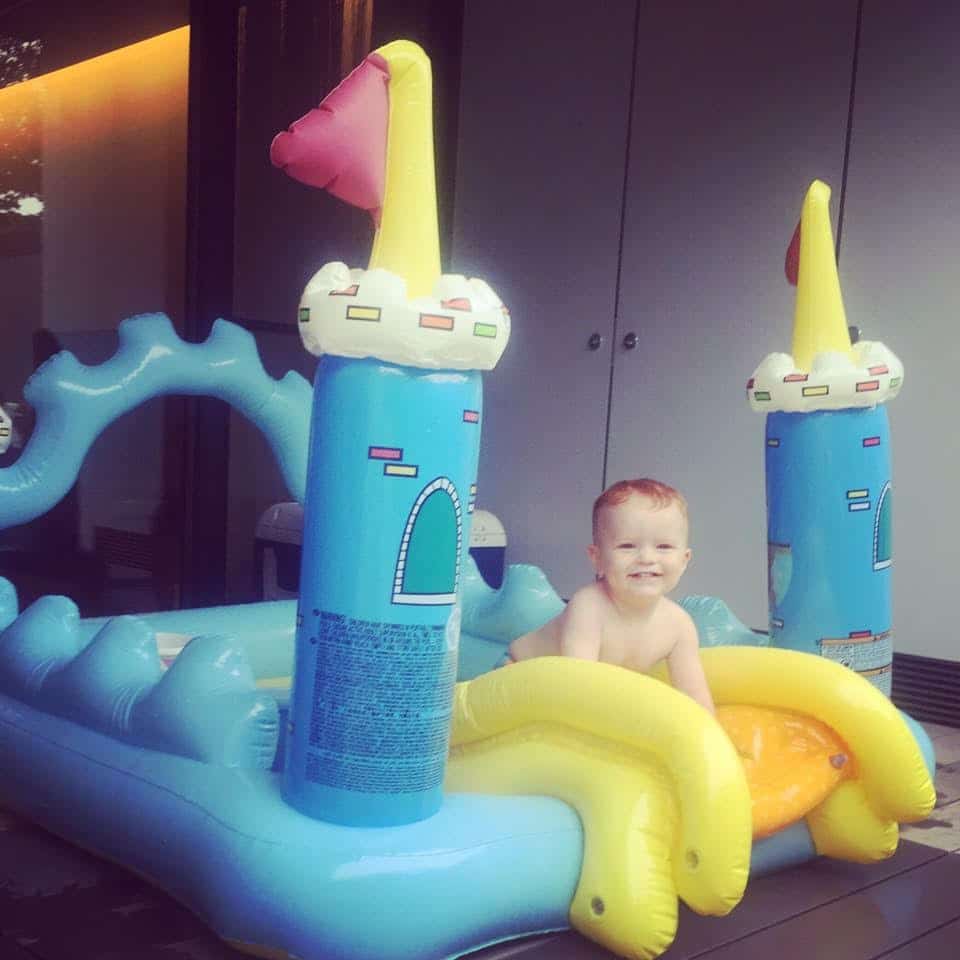
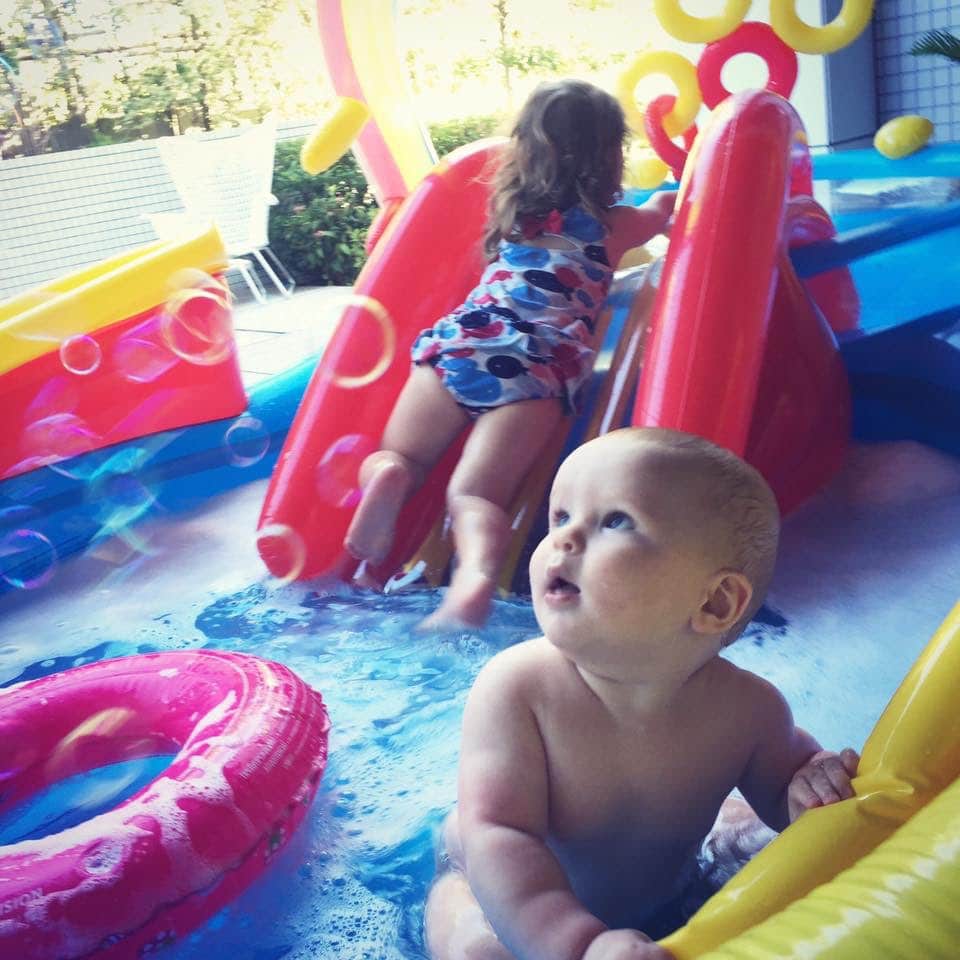
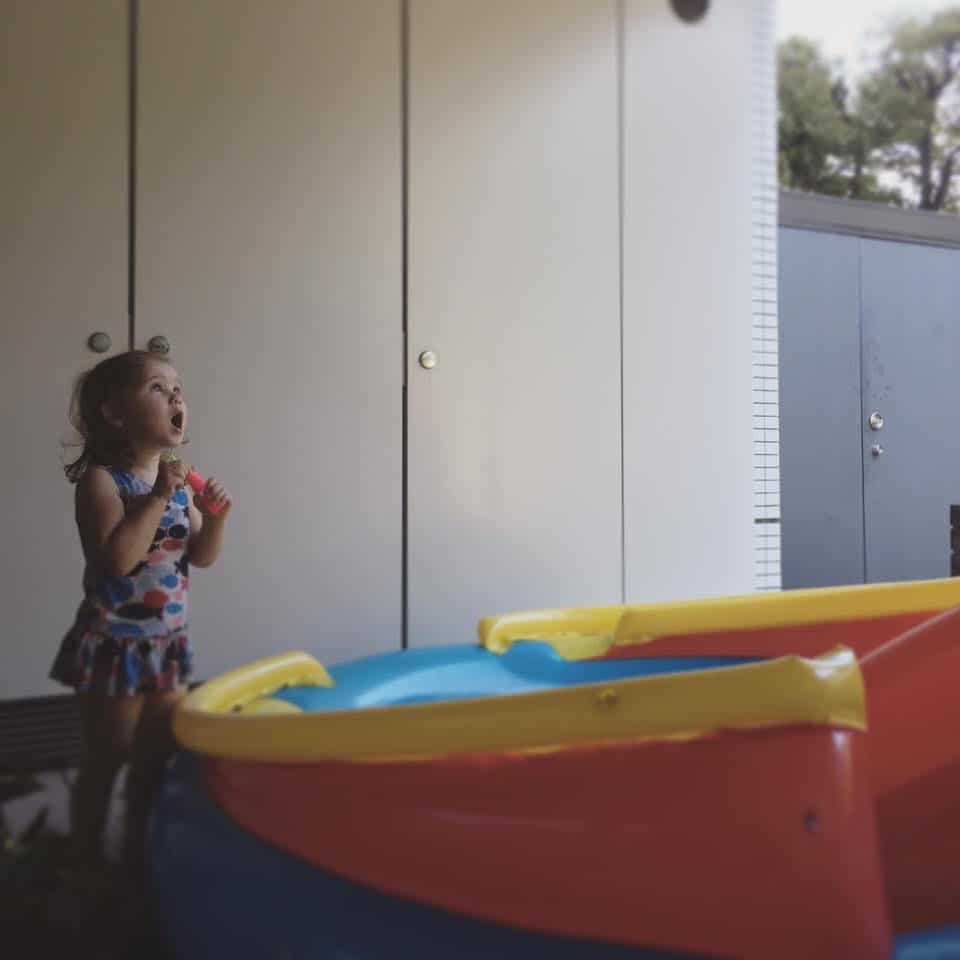

….and if you don’t have any outside balcony space you can use the pool as a playgym (note the anti-head-donking cushions.)
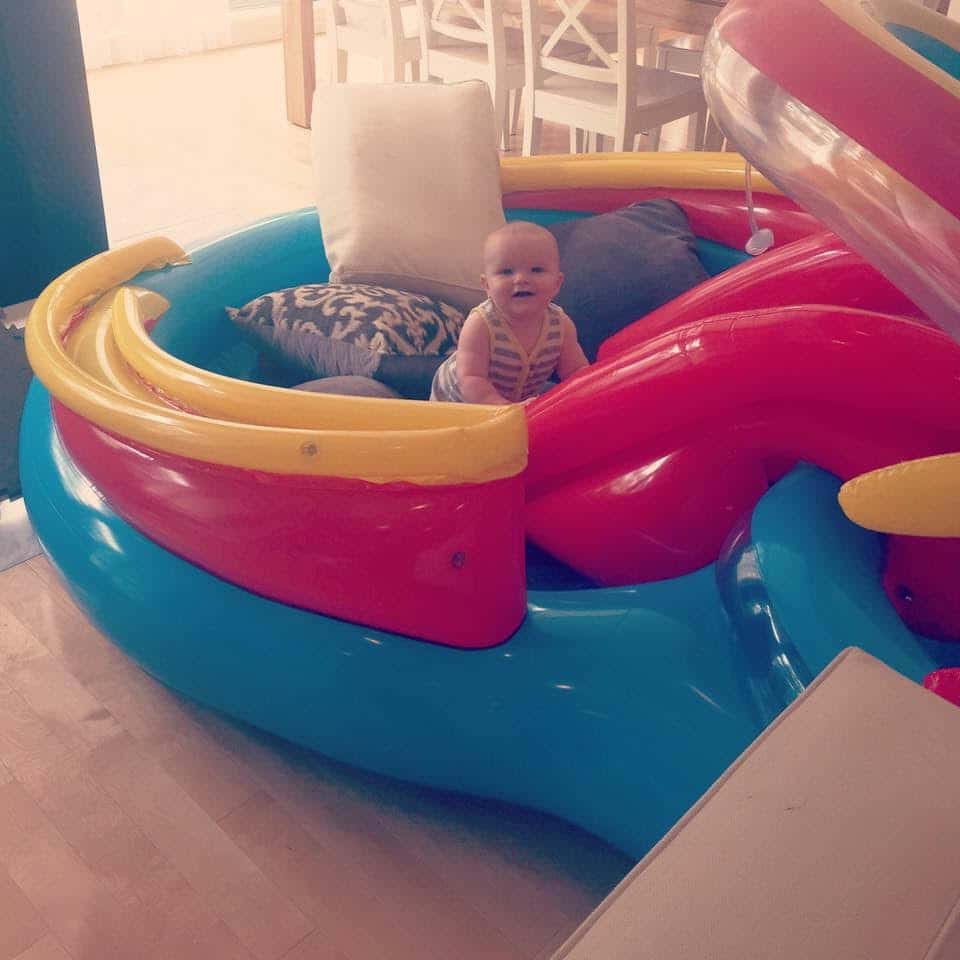

Then we also try and get crafty when we are housebound too. Using with my (oops) online shopping boxes. It’s amazing how imaginative you can be when it’s been a while since you left the house…….
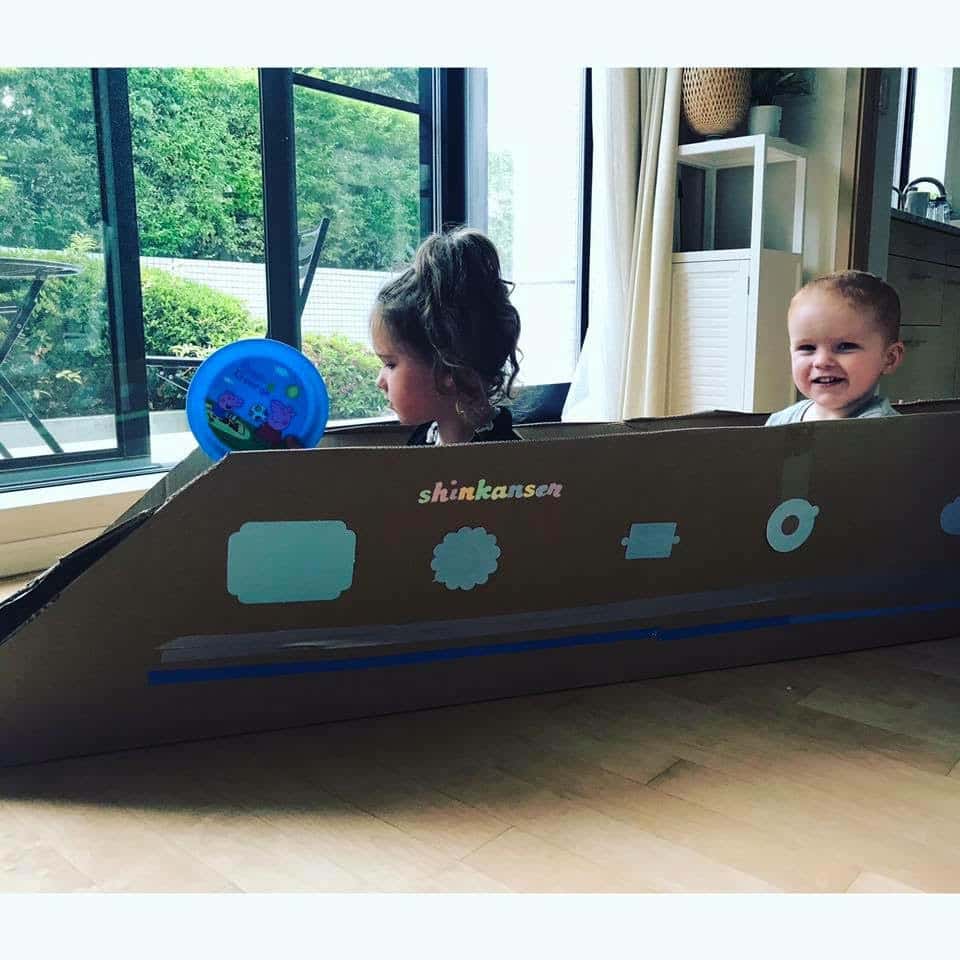
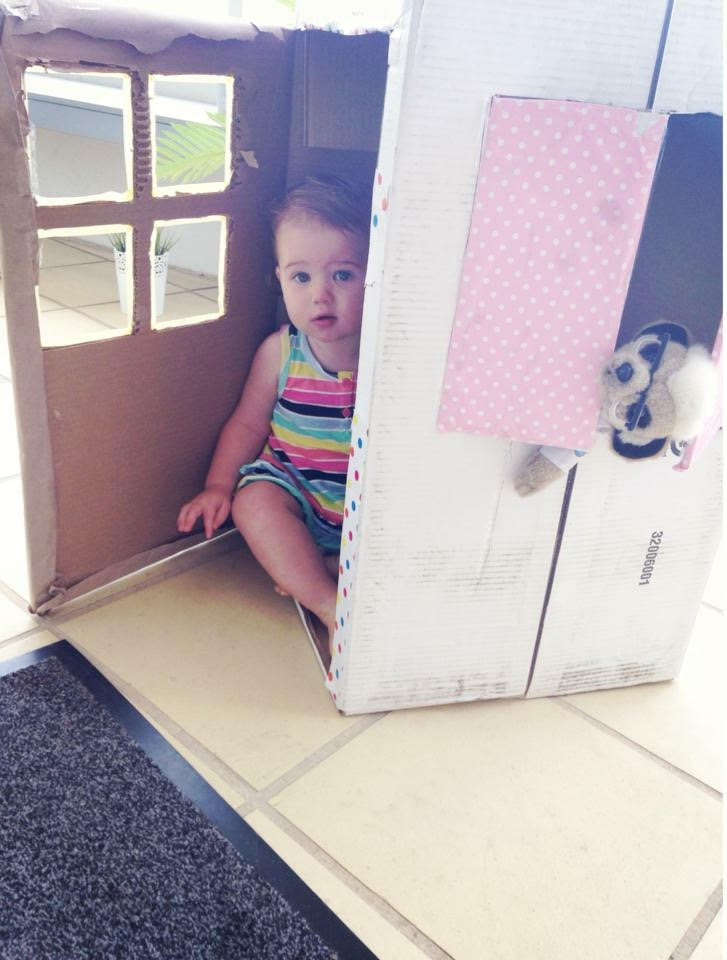
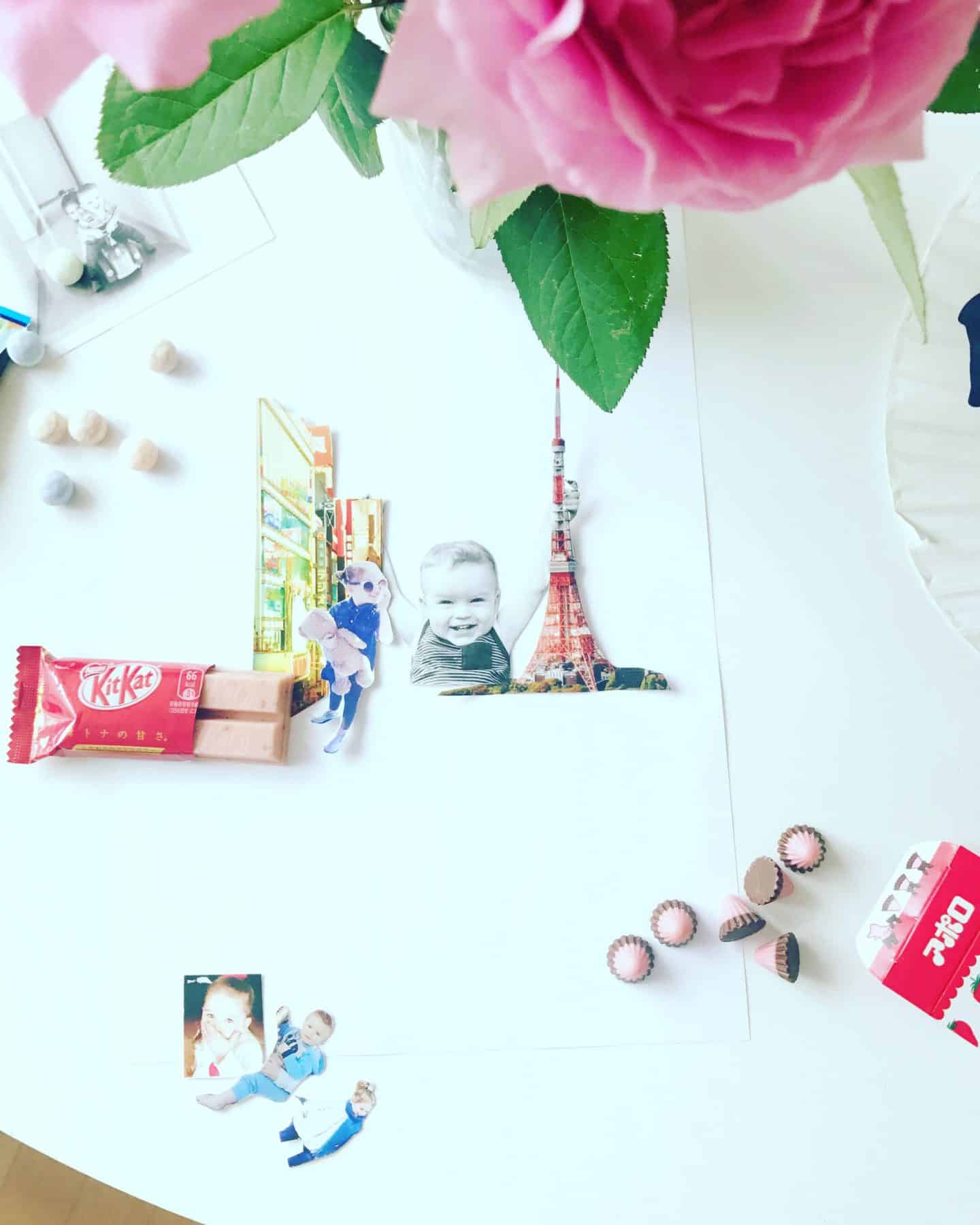
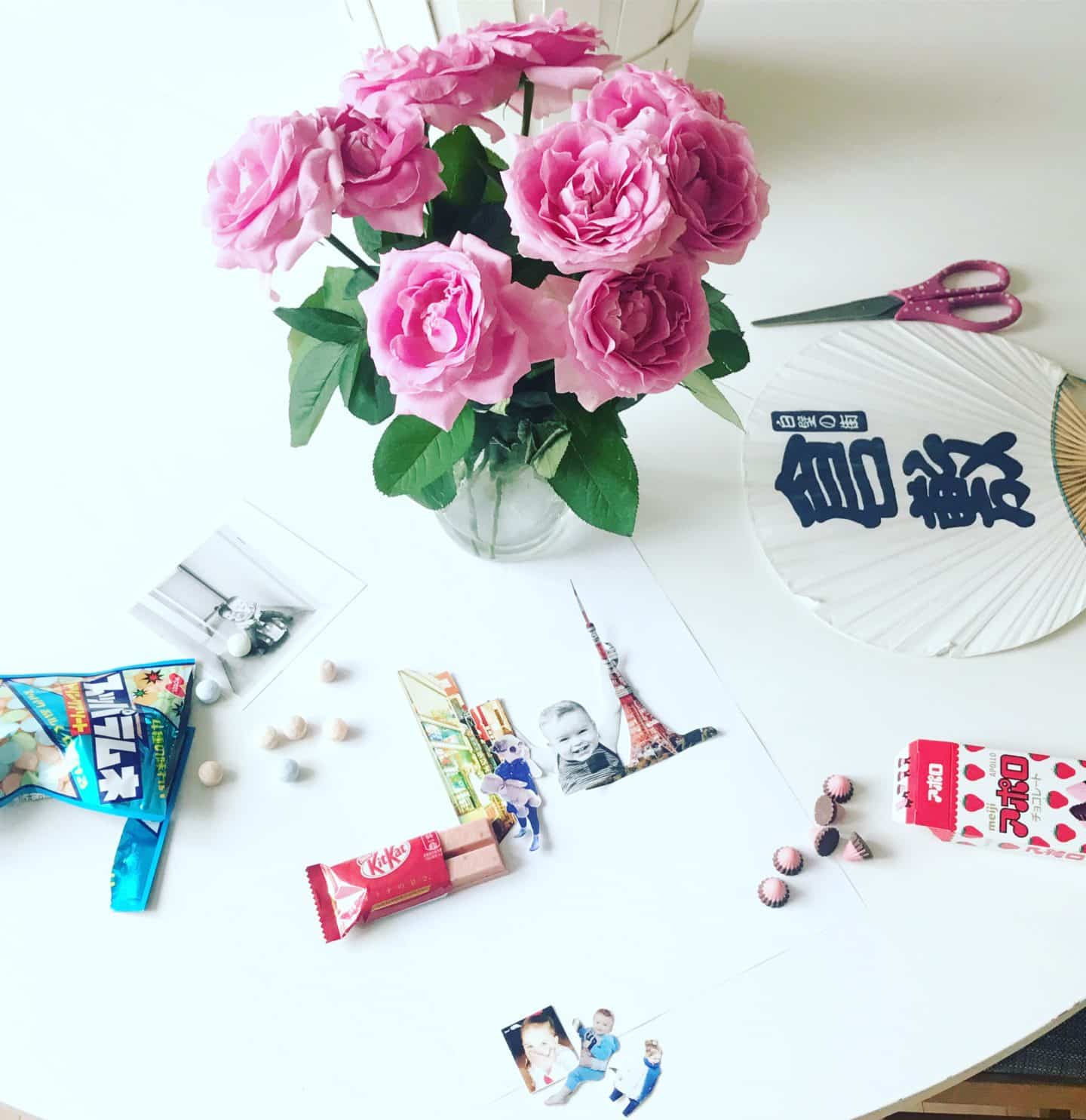
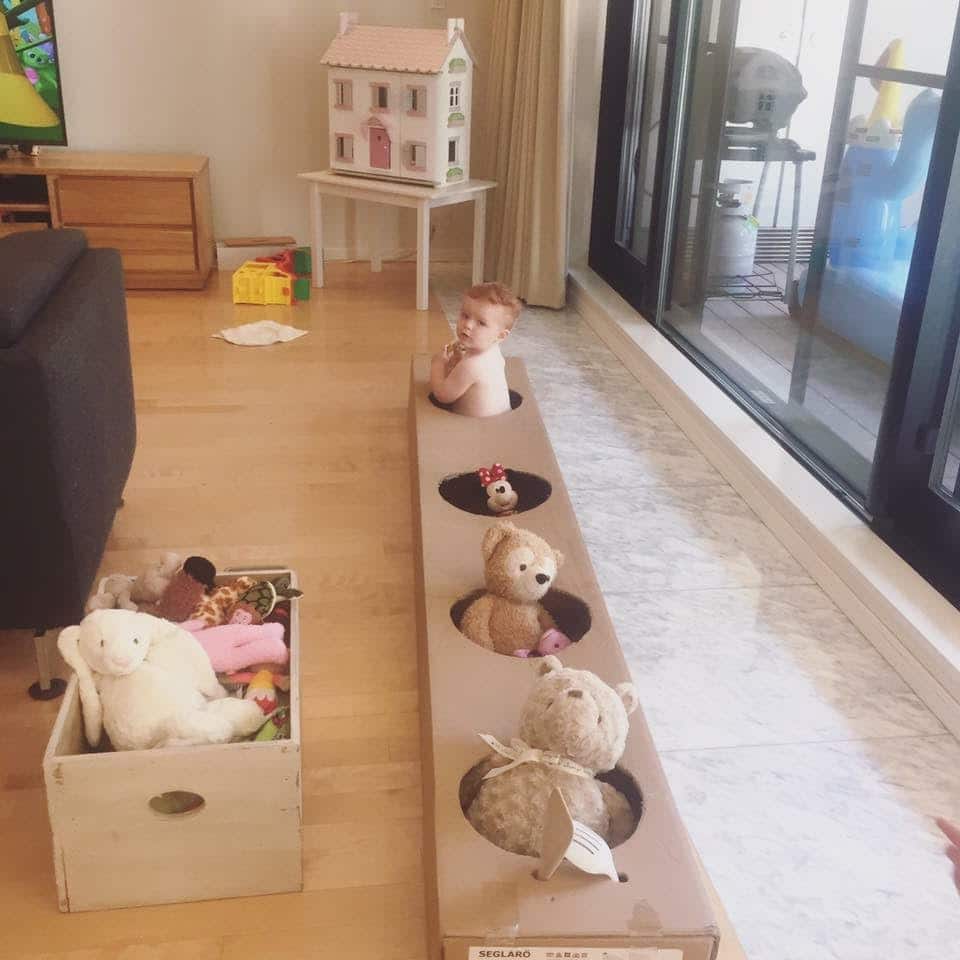
I actually have a pinterest list of rainy day ideas as my go to. (These are my favourites.) We try to have a bag ready and run outside the minute the rain stops for even a moment.
And if you’re like me and you just can’t bare the idea of staying at home for too many days in a row, here are my Tokyo rainy day ideas.
And then… sometimes we just go with it. It’s still so warm that we just throw on ponchos and jump in all the puddles we can – then come home for a bath.

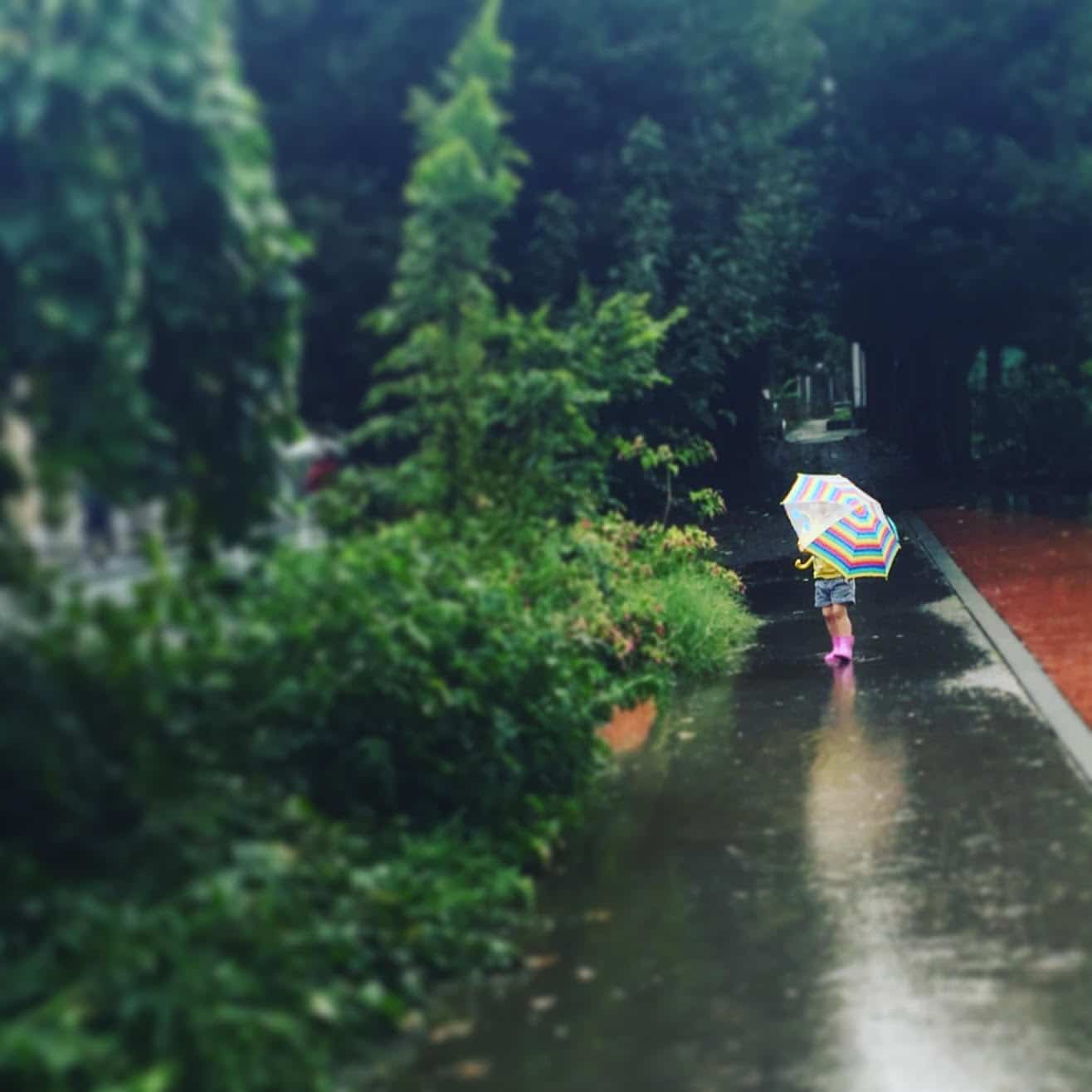

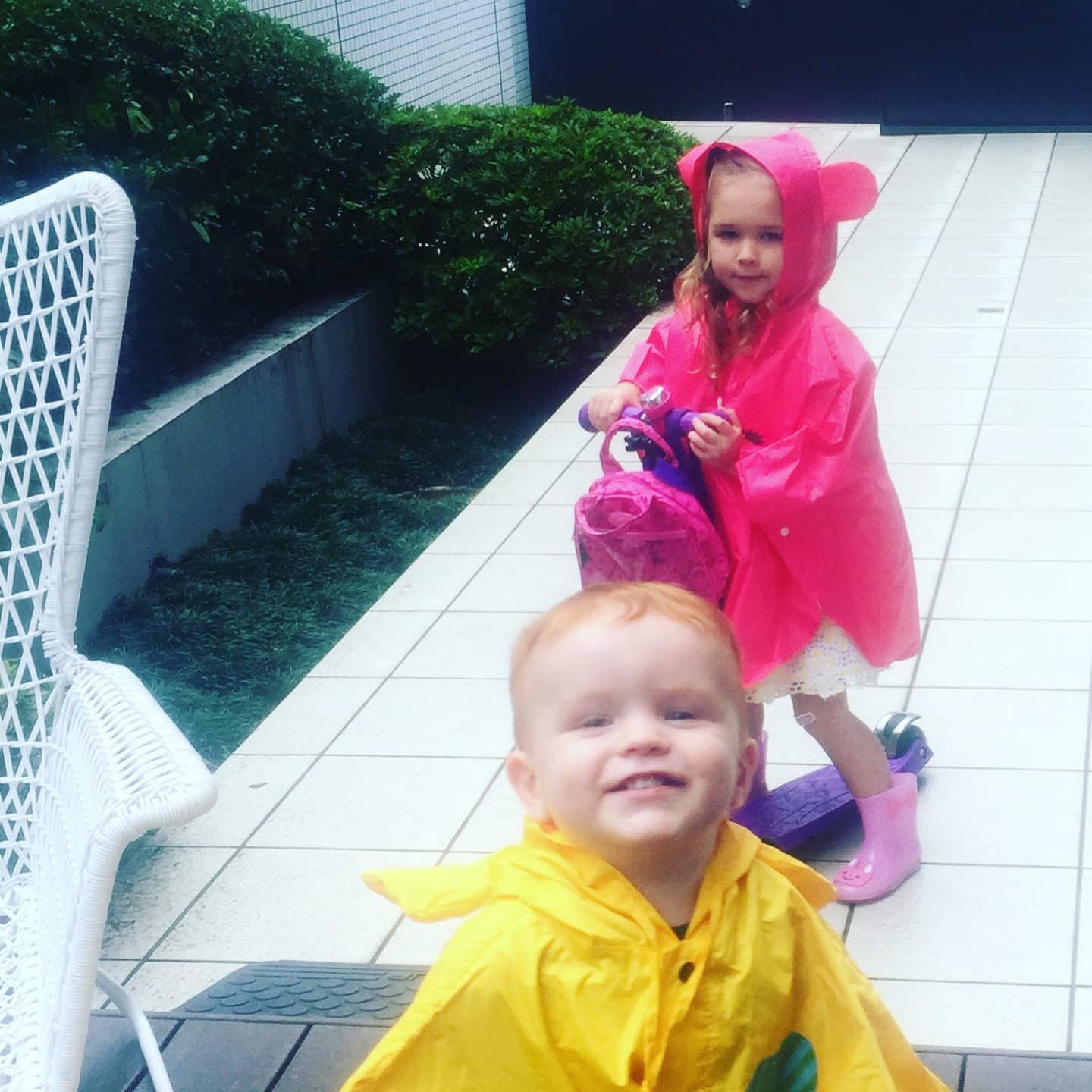
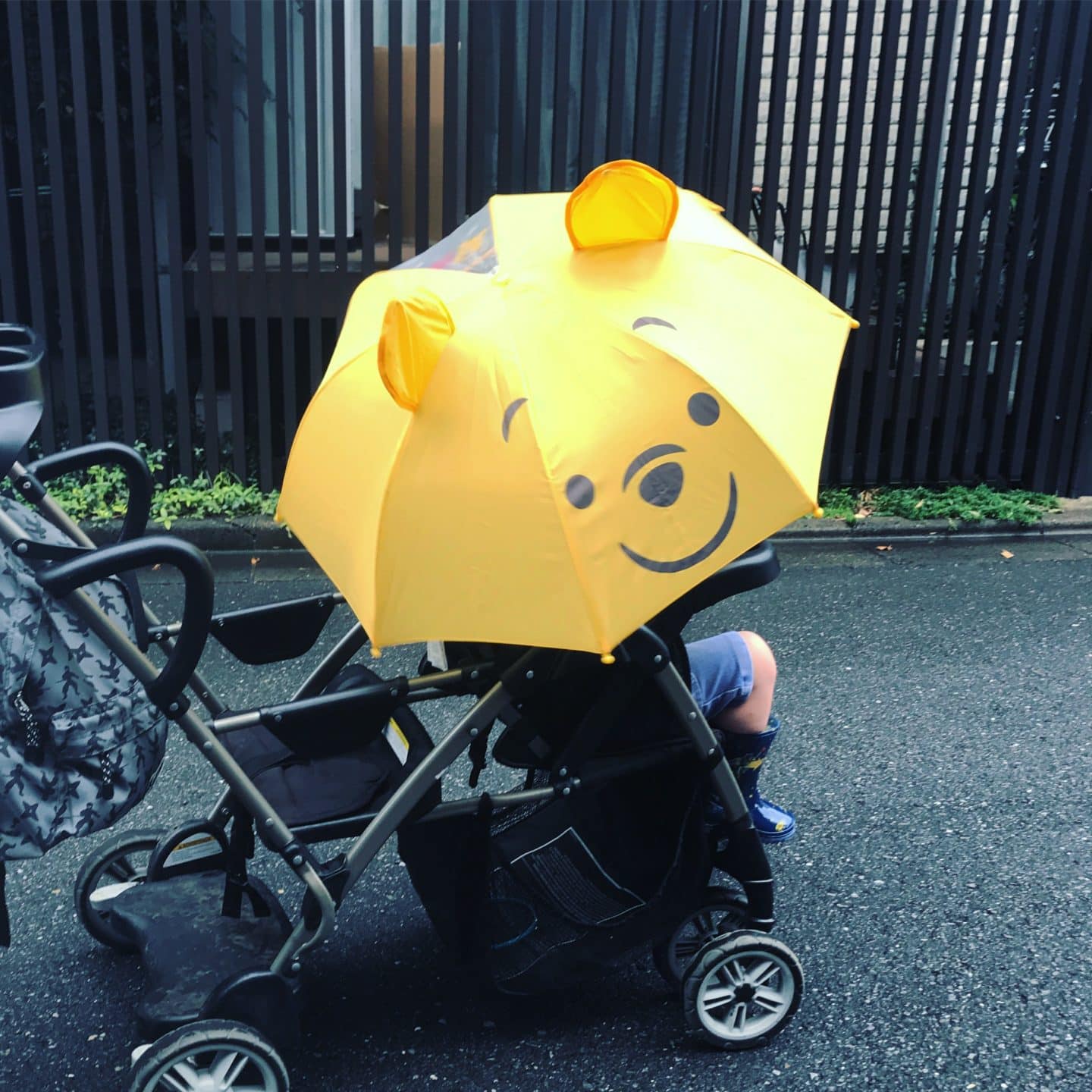
And, as I say above, the drugstores deliver – so if you fill your shopping cart with a gazillion nappies they will then (if you’re shopping locally) deliver it to your house. (See above for how to ask for delivery in Japanese.)
Just as an FYI and this is not even a little bit sponsored (jeezzzz I wish it was as I spend a looooot of money on nappies) but we LOVE the nappy brand here called Merries. It is the softest and best quality nappy we have ever found and comes in a wide range of sizes. They also have that cool sticky thing on the back of the nappy to help you neatly tidy up the soiled nappy before you put it in the bin. Here is my blog post on where to buy nappies/diapers in Japan.

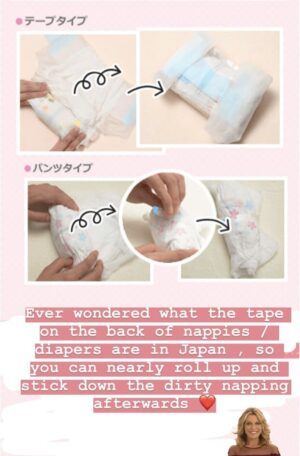
Oh and while I’m talking about nappies, I also have a post on what I carry in my nappy bag in Tokyo, if you’re interested – click here.
How will I be able to have lazy dinner/ totally slack Mum options?
I also think it is important to suss out your closest takeaway dinner options.
Next time you’re walking through your neighborhood pick up the brochures for the Thai and Indian spots that takeaway and deliver.
There is Dominos here BUT be warned … it’s a lot more expensive than Australia and the US so, personally, I would wait for a special deal.
If you live near one of the Segafredo chains, my kids love it when I collect one of their takeaway Margherita pizzas. They are reasonably priced and they box it all up nicely for you and it is cooked to order.( Unfortunately they don’t deliver so you’ll need to physically visit the cafe.)
A lot of the biggish supermarkets also have a deli section and also sell bentos. Pick up some Japanese options to go with a salad and it’s a total dinner cheat.
My kids also love yakisoba (cooked noodles that you cook in the fry pan and it takes less than 5 minutes) so I always have those in the refrigerator for a rough Mummy day.
There are other easy Japanese dishes like curry rice that are easy to throw together but I’m sure parents all have their go to soups and quick dinners so I don’t need to spell it out.
OOOhhhh ! A couple of cheat hints that I will mention though are making the most of the convenience stores to make a throw together meal – the salads ( and the AMAZING sesame dressing sachets) are freshly made daily. There are also those little microwaveable rice packs and my daughter LOVES corn on the cob and you can buy a whole cob that can go on the microwave too.
I also joke with friends that someone needs to make a ‘How to fake a full dinner with just Japanese convenience store ingredients’ cookbook. I would TOTALLY buy it – I really, really would.
Will my children still have access to beautiful books in English?
This sounds like a silly concern but we had a lovely story time program near our apartment in Melbourne. We were able to buy and / or borrow beautiful children’s books whenever we liked.
Okay… so , to be honest, this is a little bit more tricky. Obviously, English books are imported so are more expensive. So I recommend bringing as many books with you as you can.
Apart from that, we buy books mostly on bookdepository.com and some on Amazon. If I want to go to an actual tangible bookstore, I go to Bookoff or Kinokuniya in Shinjuku ( in the annex off Takashimaya Times Square.)
I also love the kids section of Tsutaya in Daikanyama, as part of the T-site complex.
I also recommend sharing around with other Mums.
We, as Parents, are very involved with one or two books before bedtime every night to keep our stories as ‘alive’ as possible.
So far … it all seems to be working? ( who am I kidding? I’m completely winging this parenting business. )
Most Tokyo libraries also have a small but healthy stash of children’s English books.
Some embassies also have an English book section – I know that the Canadian Embassy sure does.
Will my kids have great areas and beautiful parks where they can play?
This was a big concern. It’s Tokyo – it’s grey and filled with concrete, busy streets and subways right?
I also knew that our house would , most likely, be smaller than all of the other houses we have lived with kids so I knew I’d be relying on parks to often become our own backyard.
And guess what? Single child-less me who used to live in Japan never EVER looked for parks and playgrounds.
But they are there.
In fact, like most major cities, there are little green wedges that must remain that way (ie. can’t be built over.)
The trick is to either make sure you live near one of them OR do your research and make sure you have great transport access to one of them.
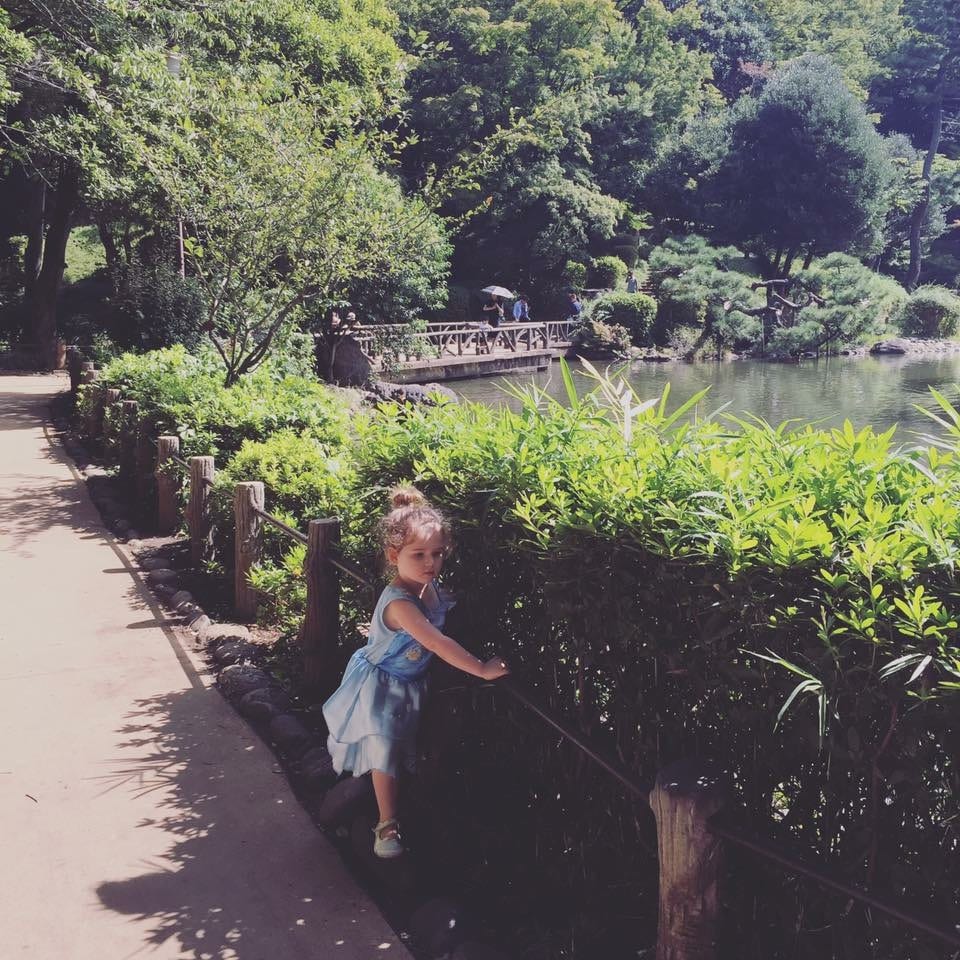
There are also a lot of playgrounds in every area of Tokyo (some of them are not so green – but my kids don’t seem to care even a little bit.)
But, if you do some clever planning you can mix it up nicely between a local playground and a lovely, leafy area on a weekend. (Here are my favourite larger Tokyo, green parks just out of the city centre.)
Two of the greenest most lush inner city parks are Arisugawa Park and the much bigger and the much more famous Yoyogi Park .
I also recommend checking out my post on all of the funky retro playgrounds that I have visited all around Tokyo. I can’t work out just exactly why there are so many cool playgrounds in Japan just yet….Maybe it’s because the lack of space calls for more creative use of space and a true artistic sense of “let’s not waste this?”
… or maybe playground designers are just given more artistic freedom and funding?
Either way, we just love exploring new and creative little public spaces – clearly created with overactive imaginations in mind.
Here is my full detailed list of cool retro parks (the ones we have found so far) in Tokyo.

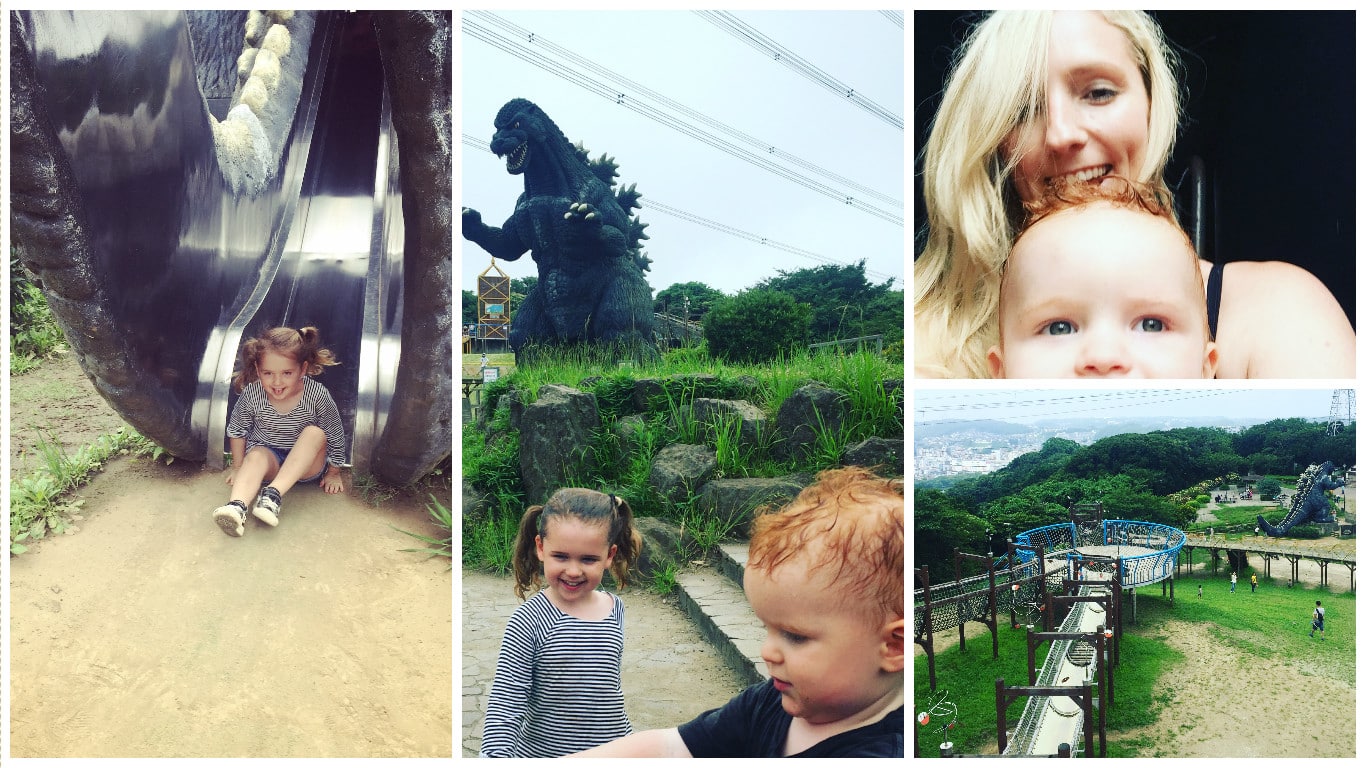
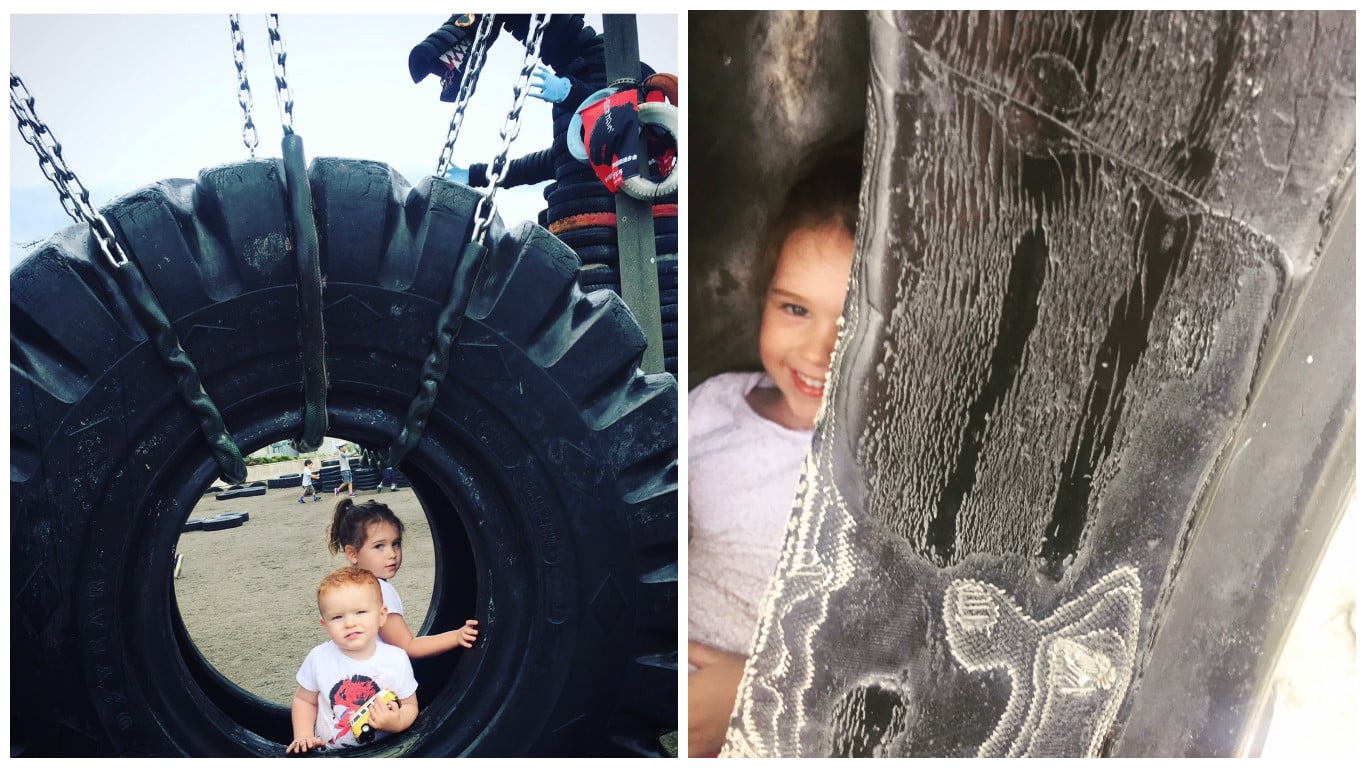
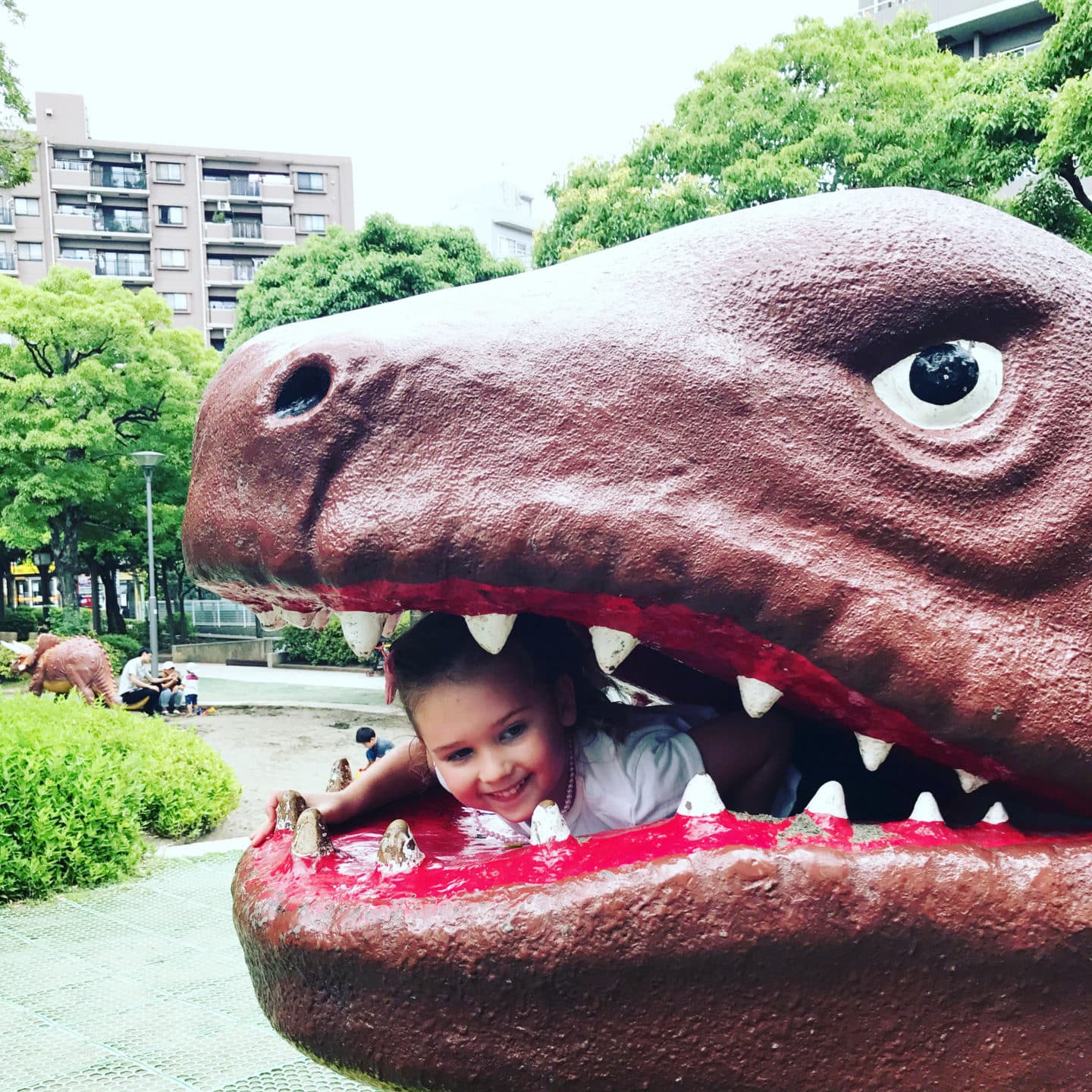
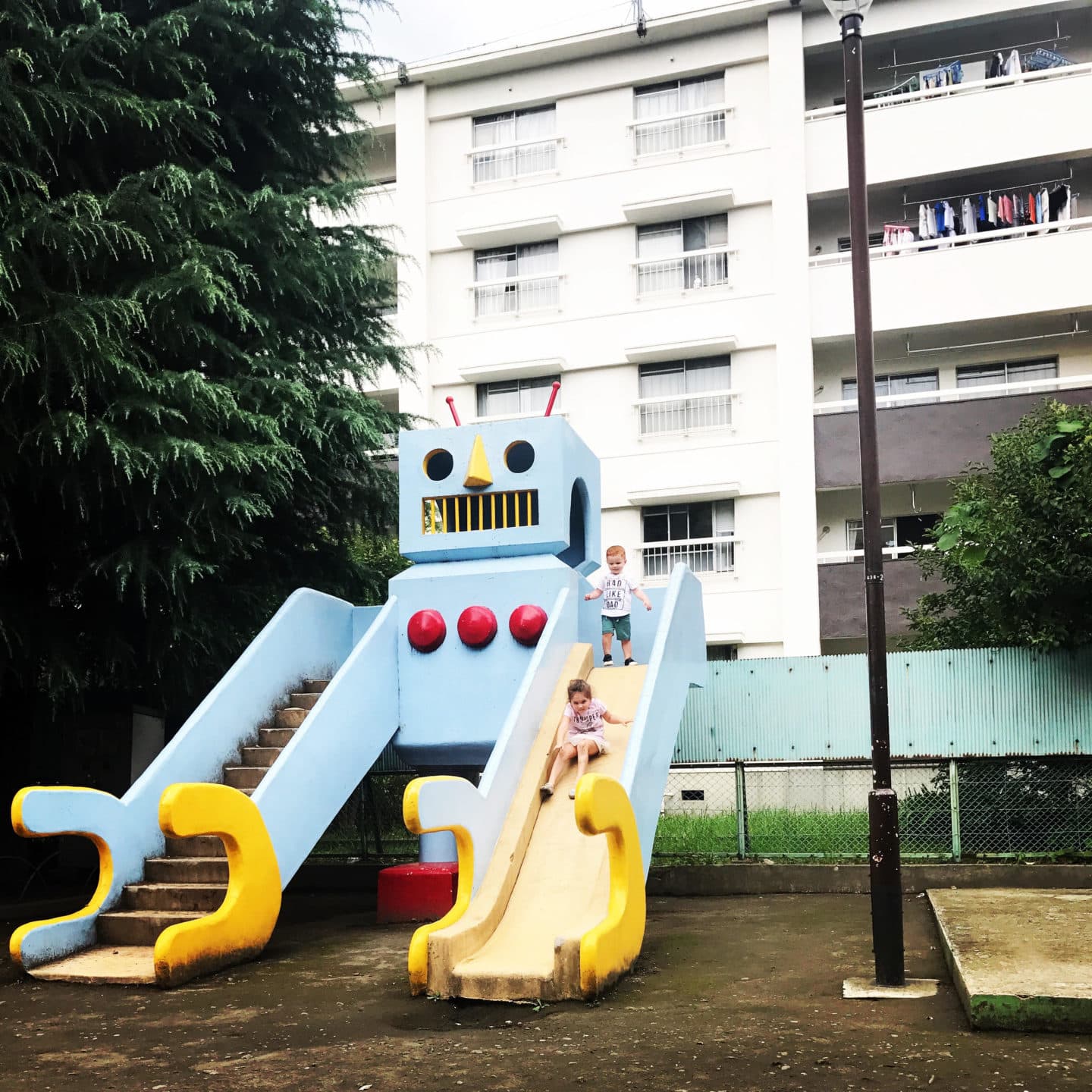
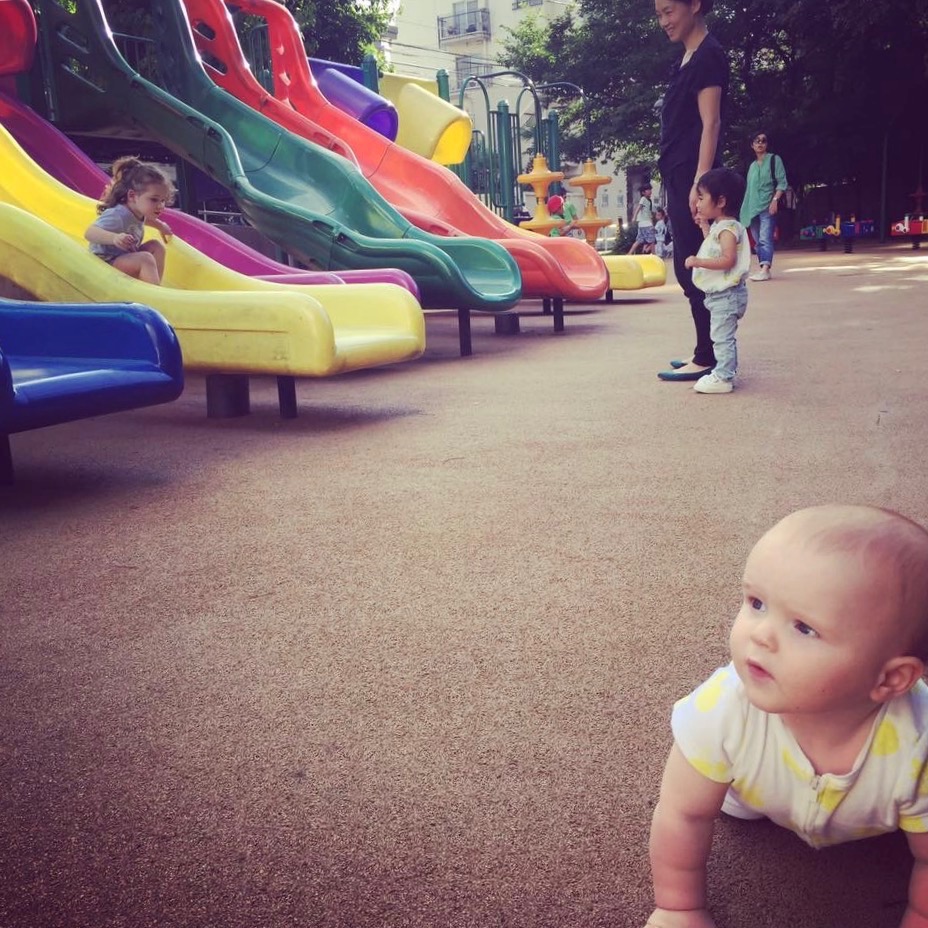
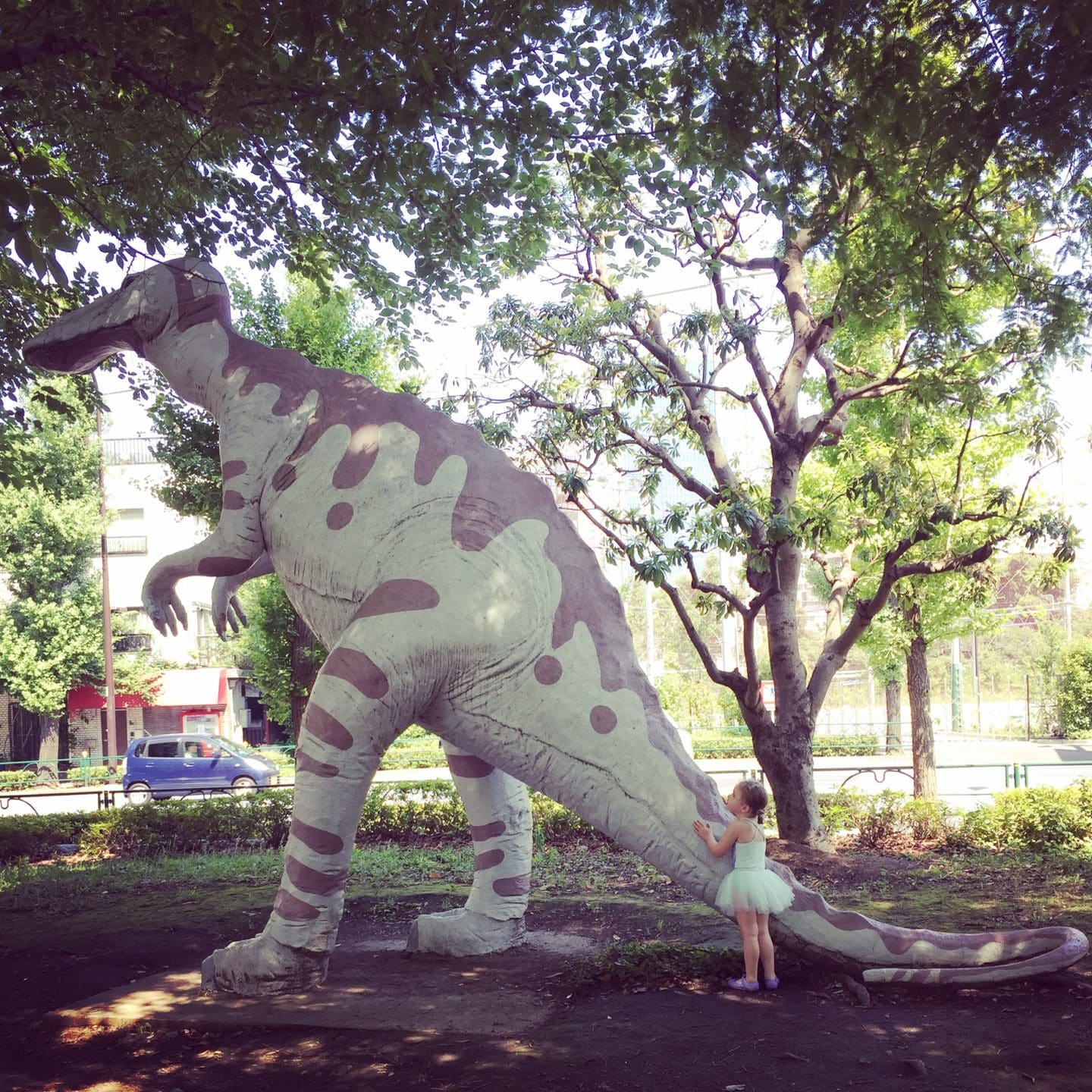
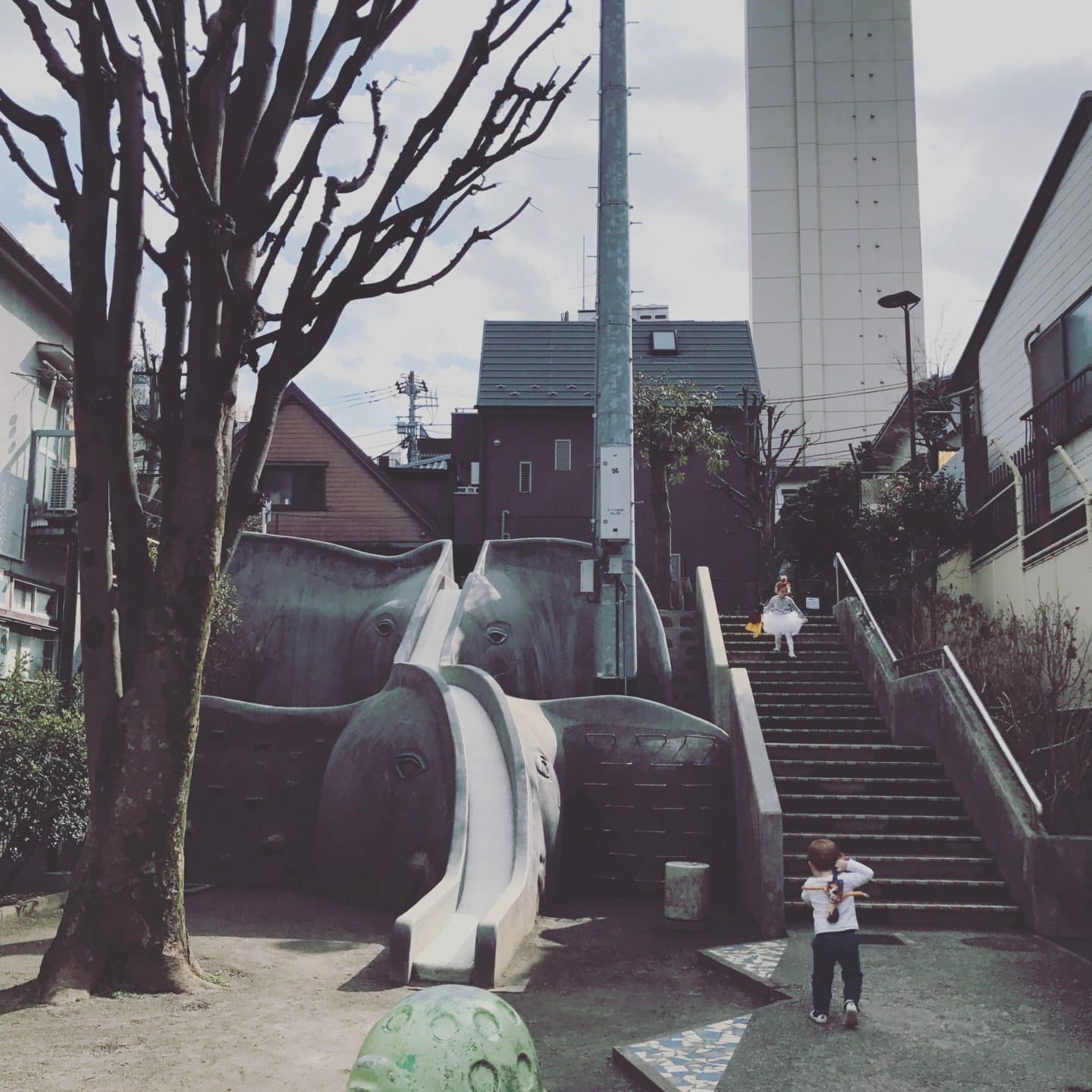
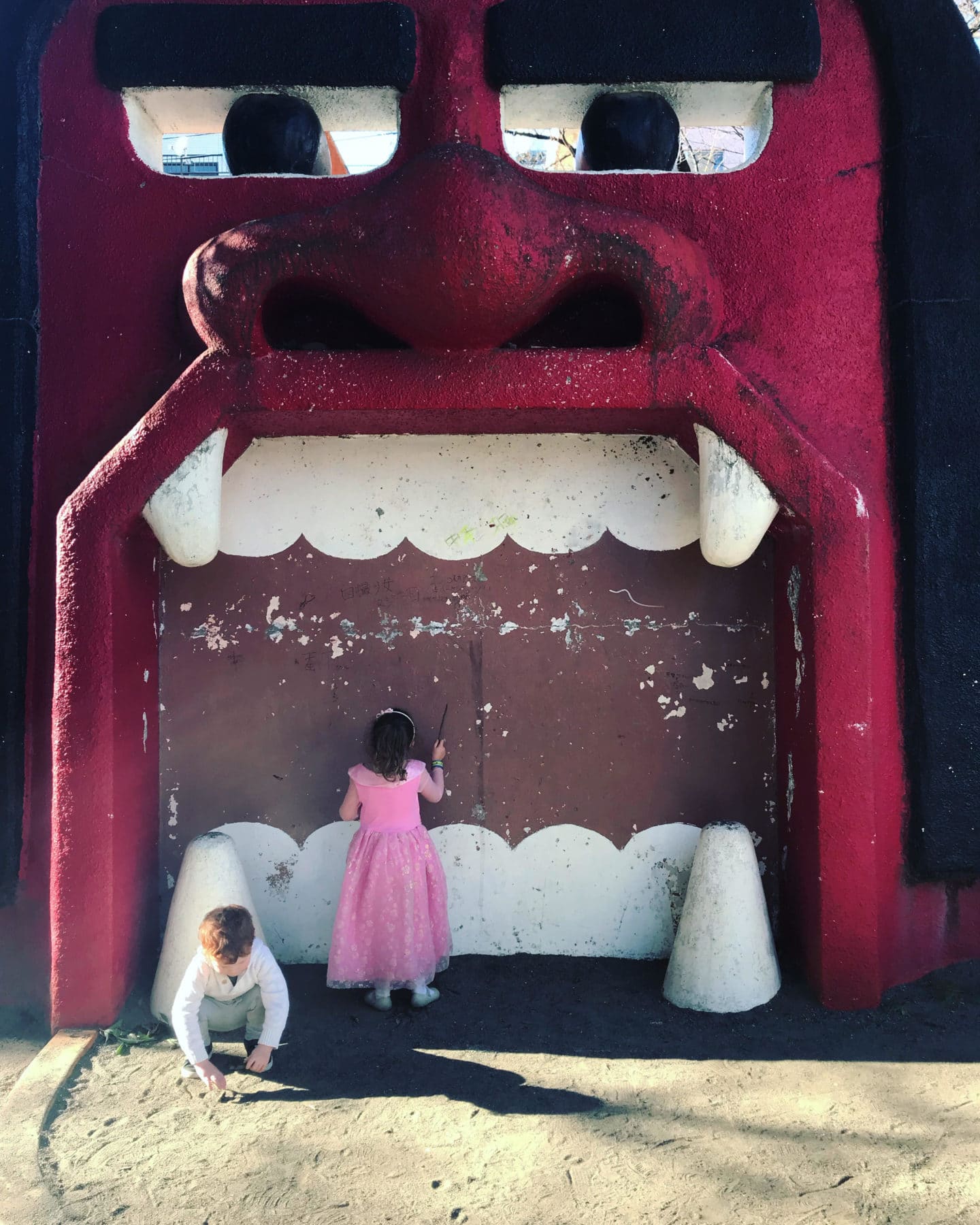
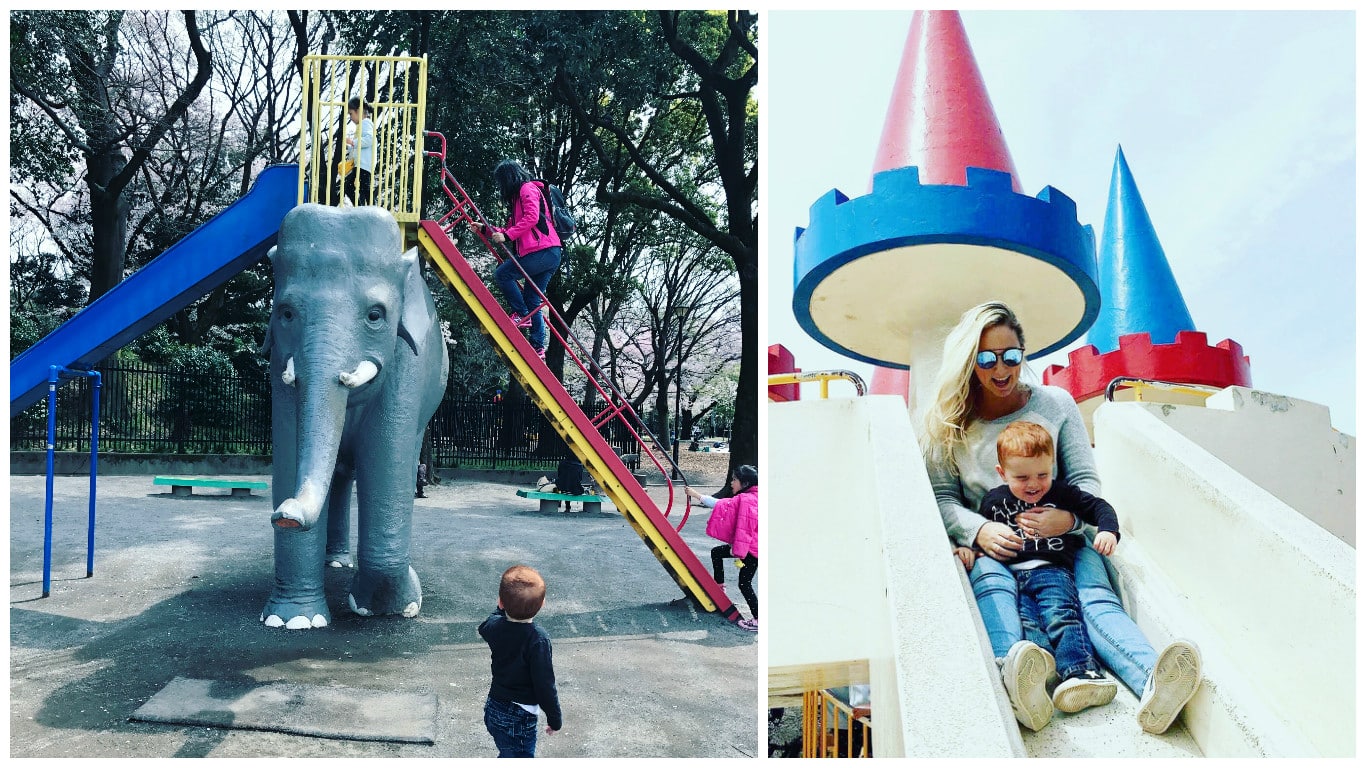
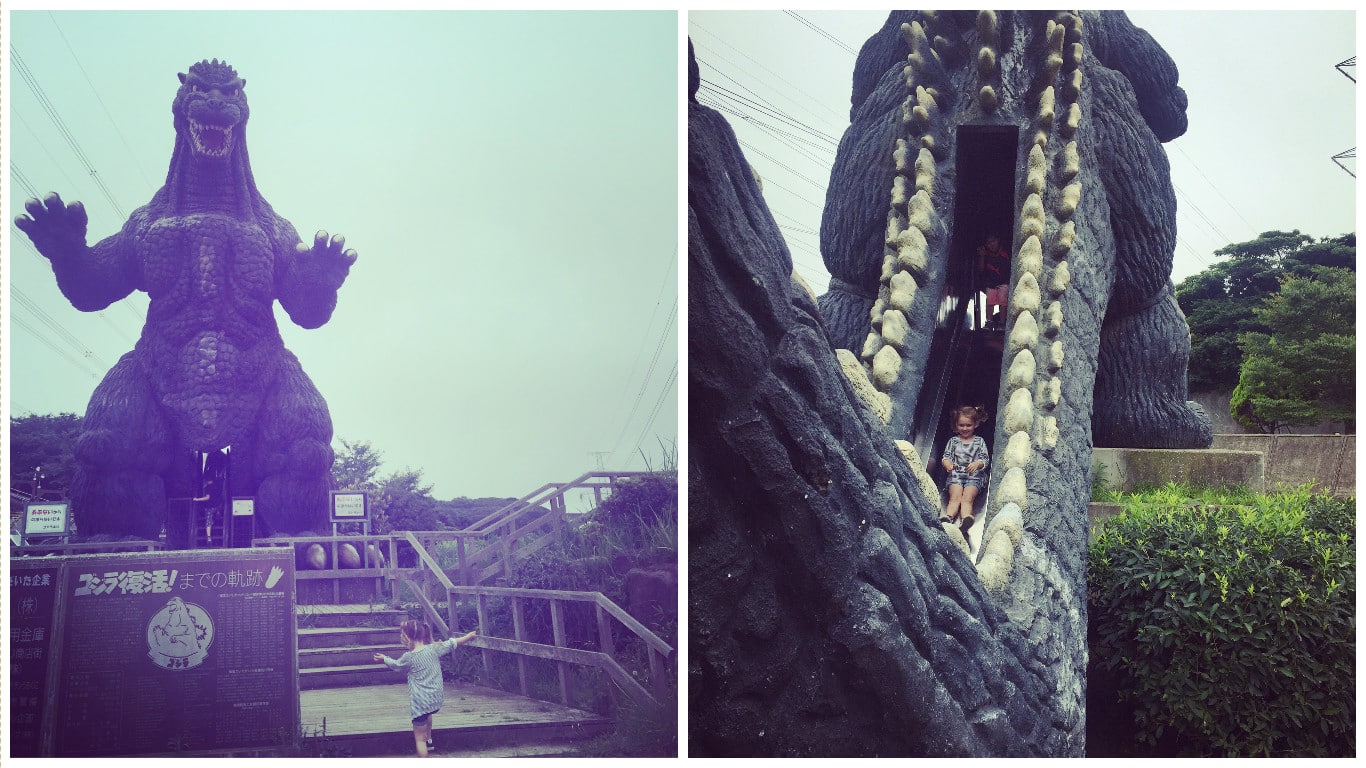
And then, another great solution to park life on a rainy day is a decent playcentre. Japanese playcentres are the cleanest you will ever see. Most of them are cleaned hourly – including ball pit balls !!!!
Here is a list of our favourite playcentres in Tokyo.
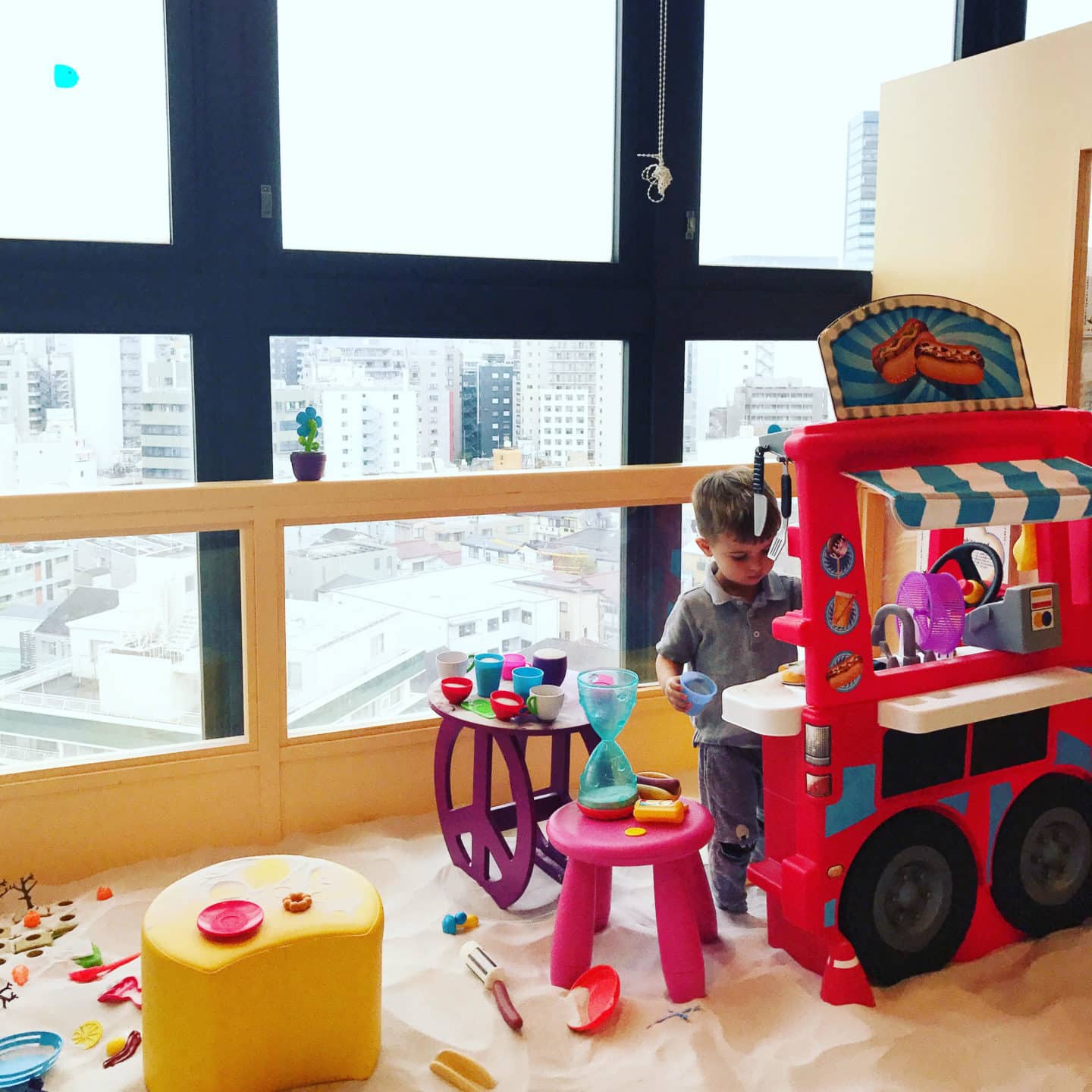
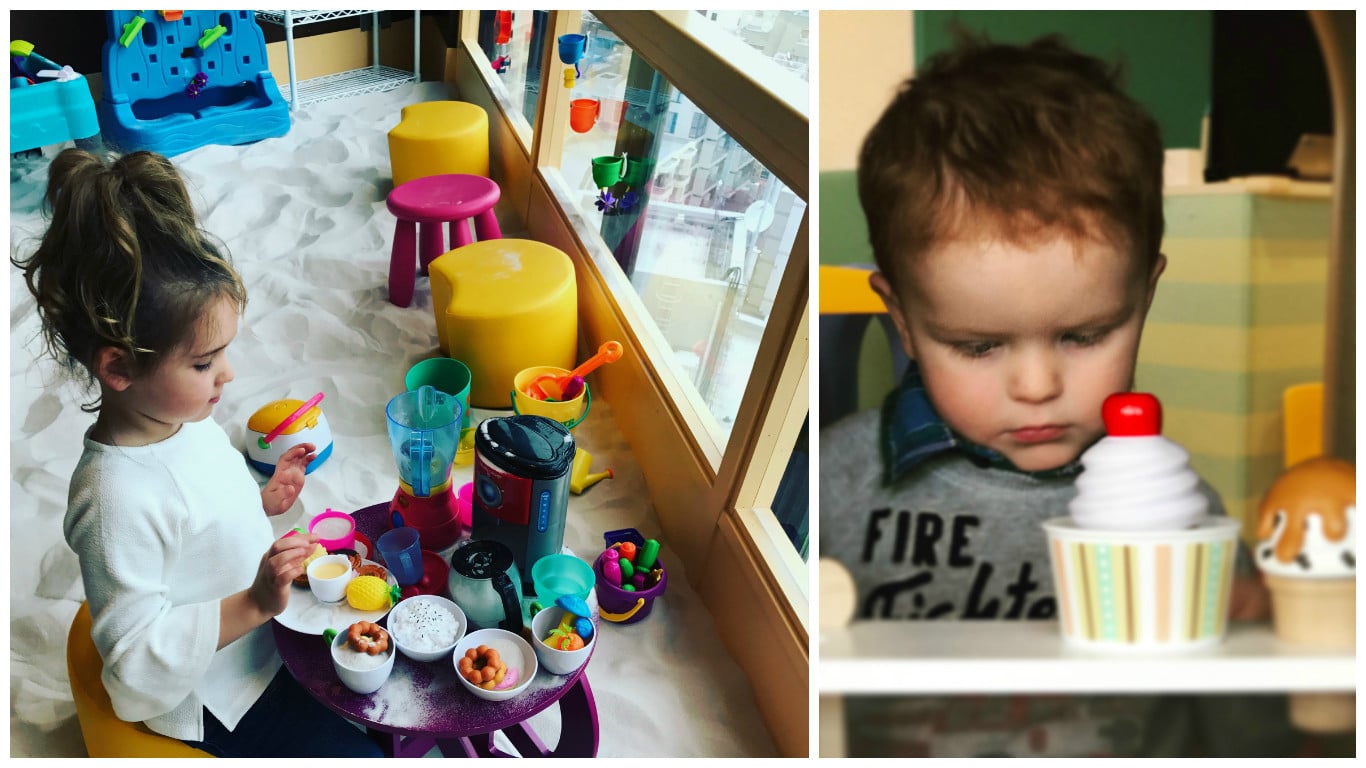
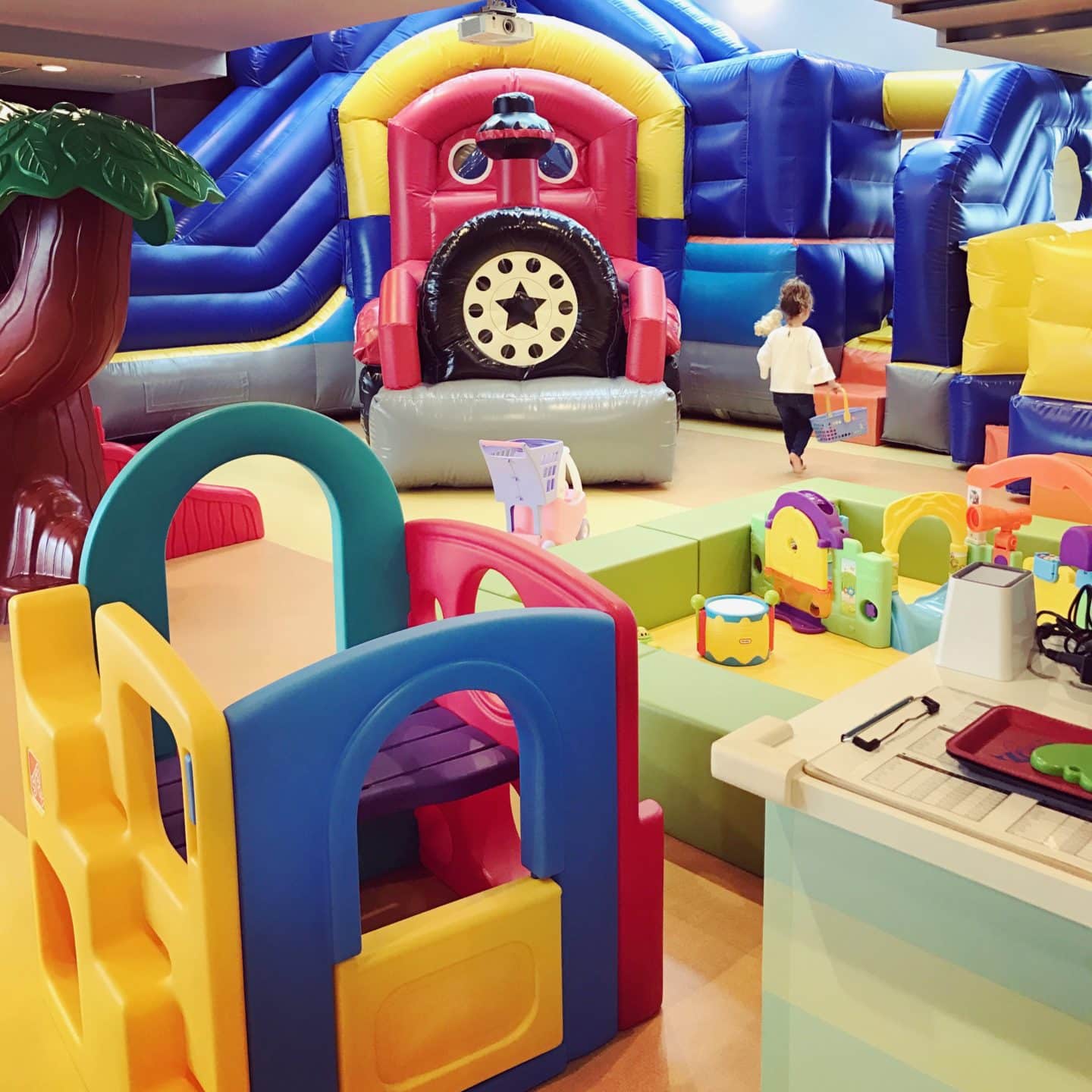
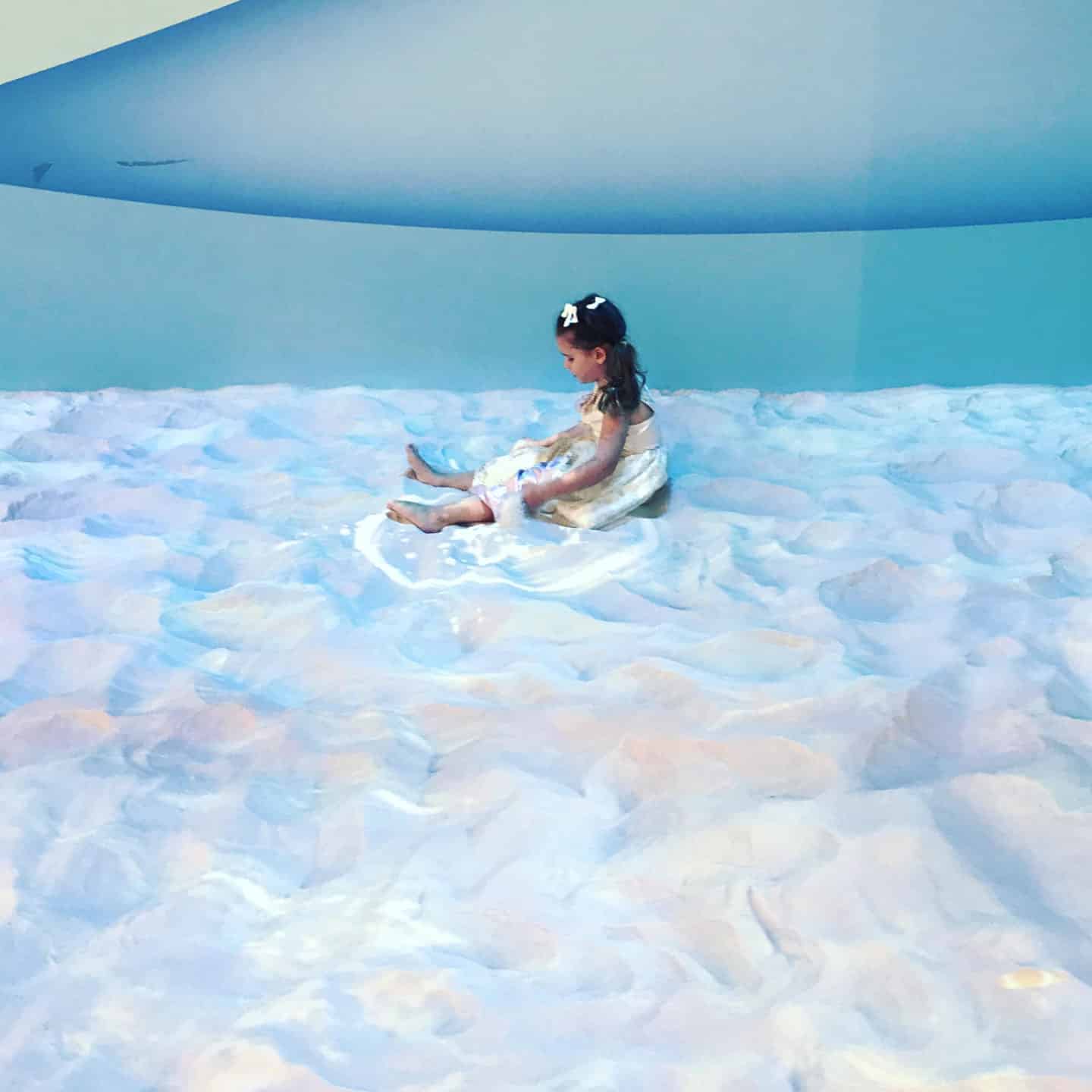
Will we have enough space in our little Japanese house?
This was a worry of mine because I have spent most of my time in this country living in a Japanese ‘Mansion.’ A mansion it is not though … hahaha. It means a block of apartments that almost always have just one room – well mine did anyway.
For a poor student it was all I needed.
No, scratch that, for one person that was all I needed! It’s amazing how we get accustomed to so much space but then you realize how you just need your living space and then anything additional is a bonus. And boy, did that little space with me folding up my futon everyday (and in my last ‘mansion’ my bed folded down from the wall) teach me to be tidy! It’s also so easy to vacuum when you don’t have to change power points at anytime! (Psstt: I could also always see the tv while sitting on the loo.)
But a little space is all well and good until you add kids into the mix, right? (and all of the stuff that comes with them.)
I must be honest here and admit that we are an expat family so this worry was quickly lessened when I saw some of our options for quite spacious apartments in Tokyo (still smaller than if we lived in Oz or the UK but still.. much more space than I had ever had in Japan before) but I do want to share some tips and positive elements and I definitely don’t feel like it makes me want to move away from Japan quickly because of space issues.
I think it REALLY helps you not be a hoarder. This is the land of Marie Kondo, right? And it really is how most people operate here (except for stuffed toy hoarders who I seemed to come across while doing homestay.) People have one of everything they need – but just one. And they love and take good care of that one item. Then, when that one item is old and no longer serving its purpose, it is thrown away an then replaced with a new version.
One good raincoat.
One good soup pot. etc…

Now with kids this is tricky but it did teach me that I can’t “hoard ahead” like I used to.
I used to buy clothes or shoes a few sizes bigger to keep and I rarely do that now. We get what we need.
We also donate what we don’t need anymore as soon as it is no longer our size. (I talk about donations in my suggestions towards zero waste in Tokyo blog post, if you’re interested.)
I also found toy rotation really works well for me. I have a storage cupboard with the puzzles and larger toys inside and I rotate them every week or so. Then the kids feel like they have something new(-ish) to play with without the house looking like a playcentre.
Another tip for toys that helps us is things like those ikea tents or inflatable or just generally fold-up packaway-able toys – are so handy. You can change the vibe of a room for an afternoon and then pack it up again when they go to sleep.
I also highly recommend becoming a member of Tokyo Garage Sale group on facebook. This is like a mini-Craig’s list within the foreign community and I find it to be a cheap way to sell our pre-loved toys and kid-related crap and then replace with something more age appropriate. There is another group called Mottainai Japan where people give away things for free (mainly because hard rubbish costs money to dispose of here , so it’s cheaper for the owner to actually give it away for free.
I wrote a list of items I find hard to obtain in Japan and therefore buy when I’m overseas – in case that helps with what extras you might want to throw into the suitcase.
Will my kids be dealing with the ‘paparazzi’ and just too much attention on a day-to-day basis?
As I’ve lived in Japan before I knew I didn’t have to be concerned for safety (for me and for my family) even half as much as I would have to be in pretty much any other country.
 I mean, even when it comes to lost property, people here are just so incredibly trustworthy.
I mean, even when it comes to lost property, people here are just so incredibly trustworthy.
I remember telling a Japanese girlfriend just how amazed and impressed I am that so many friends had wallets returned to them – without a single card or banknote missing. She simply turned to me and said “Why would anyone ever keep it? It’s not theirs?” and I suddenly felt dirty and tainted for even having this concept engrained in me from the moment I could even start to grasp the idea of a social conscience.
But something that was sitting in the back of my mind was the amount of attention I knew would be coming to my family.
I knew this because I was the exchange student in the countryside of Japan at 17.
I was suddenly the tallest, blondest, palest and most awkwardly going through the final stages of puberty while everyone stopped to nudge one another as I walked by.
Now to someone who hasn’t experience real life as a foreigner in rural Japan, you might be thinking – oh my goodness, that poor child! People talking about her, pointing and shrieking awful things in the street.
But you’re so so so wrong.
As someone who speaks the language, I can tell you that (unless you’re behaving like a complete knob, of course) that 99.9% of the time, Japanese people are saying complimentary things about you – even when they think you can’t understand.
So with all of these concerns growing from my high school days or places where there aren’t so many non-Japanese people, I was actually very surprised to see that my kids don’t actually get that much extra special attention in Tokyo.
This capital city is now extremely international. So much so that I sometimes forget that we don’t look like locals when we are out in suburbia checking out a new area.
I certainly don’t feel that my kids are in danger here. Nor to I feel like they are in danger of monstrous egos. Yes – sometimes they are told they are cute. But sometimes they are also told that in Australia, or Scotland … or anywhere we go on holidays too. And they know that they don’t have to respond if they don’t want to. If someone asks to take a picture with them (while I’m there, of course) I let them decide if they want to and most of the time they say no – for some reason they never say no to anyone while we are at Disneyland though – that magic Disney dust, eh?
Anyway, if the photo thing or additional attention is a concern I did write a blog post on ways to tell people to not take photos or not to touch your child in Japan ( although, once again, I’ve only mainly had this issue with tourists visiting from other parts of Asia – but it’s still good to have some different options under your belt. )
Will we be able to keep ourselves involved with our families back in our home countries?
Now our ‘at home’ is a little more complicated as my husband and I met in Japan. He is from Scotland. I am from Australia.
So we literally do ‘ your turn, my turn’ when it comes to Christmas holidays.
And then, understandably, we make an extra big deal of relatives and best friends coming to visit.
My kids know it is an extra special treat and this is part of our tribe, our family’s personal identity, who is coming to stay and see (probably more than they want to of ) our daily lives.
And then there is Skype and FaceTime.

Now I can’t lie here because I have been awful at face-timing with family lately (doesn’t mean I don’t love you all!) but I do feel that helps us grownups ( and the kiddies when we can get them to sit still )- just a quick tip – if we all play with playdoh while we chat, everyone seems to sit still longer for a little bit of a discussion – mainly about what they are making but we are all ok with that…
But we do make sure all family members are talked about almost every second day. If they are playing with a toy or wearing an outfit by a certain family member we remind the kiddies as we pull them out of the cupboard and talk about that a bit. We talk about Nanny’s favorite food or Granny’s favourite colour etc.. I really want all of these relatives to be reoccurring characters in our lives. I think this kind of chat (especially over photos) is of even more importance when you live far away from relatives.
I also have a facebook group with just photos of our kiddies and only family and close friends can see. I do love to post in this group several times a day – and I’m lucky people don’t shout at me to stop …BUT… the grandparents, especially, love seeing what the kids get up to everyday and it also takes the shock out of ‘ how much they’ve grown!’ or saves them wondering what kinds of things that kids like right now… because they have daily sneaky-peeks into our lives.
Will we still have our own family time?
This was on my mind as, when I met my husband, we both lived in Kobe and he worked in Osaka ( not that far away) but he worked crazy Japanese hours and travelled for work.
It made for amazing late night cocktails after we had both finished work and for making the absolute most of every single weekend but … fast-forward to now… two little ones (one of them pretty much a new baby when we first arrived..) and bath times and sleep regressions and the occasional sick child… different ball game completely.
The good news for us is that Tokyo work hours are not always as long as the Osaka version. Mainly because many Tokyoites live quite far from the centre of town and need to prepare for a longer commute home so just can’t possibly work all night.
But I must tell the truth that they are still longer than most country’s business hours. I am doing most of the bath and bedtime routine alone ( my hubby does his best to be there for bedtime as much as he possibly can though – and he is much more ‘in demand’ as a reader in this house. Daddy is cool. Mummy is boring.
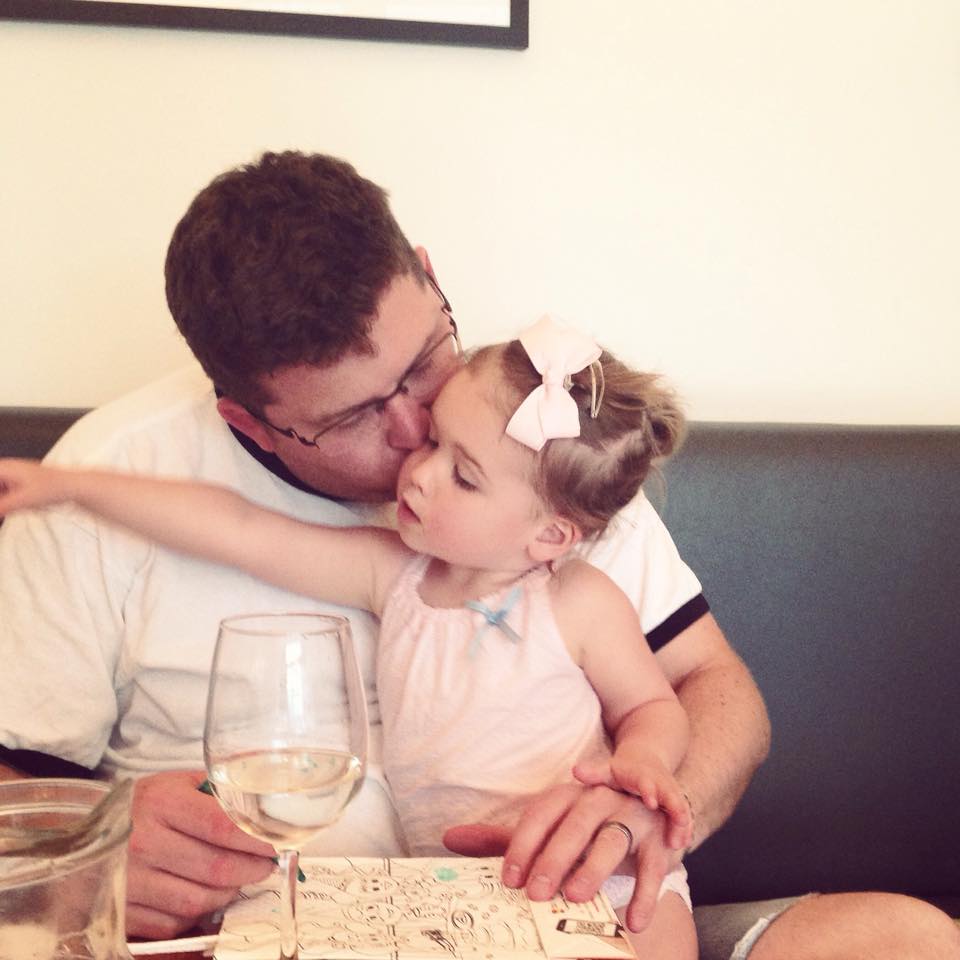
But we do occasionally get to have more breakfasts together as the Tokyo offices open later than Australian offices do, for sure.
Actually, it’s not that uncommon to see Daddy’s do the school drop-offs in Japan for that reason. Sometimes both parents come together, even.
We have found a rhythm that works for us, anyway.
Our weekends are all about the four of us and I do love that. We are a team and our weekends are very, very special. My kids call them ‘Daddy days’ and we talk all week about what we will do when it is Daddy days as if they are little mini-christmases.
It doesn’t look the same as it does in Melbourne but I knew that’s what we were signing up for when we moved and we would need to figure out what works for us.
Most of that has to do with setting up our patterns and our ‘Tokyo tribe’ but I’ll talk about that next.
Without family around, will I have enough of a ‘tribe’ to help me out when things are tough?
My husband was really good at helping me set this bit up and so was my Mother-in-law, actually who visited not long after we first arrived with my toddler and little teeny baby.
We went on mini-missions and sorted out our neighborhood key spots for me like:
*Where is the nearest park/playground?
*Where can I quickly grab eggs, milk, bread?
*Where is my local doctor?
*Where is the local jidokan (community centre)?
*Where can I get a haircut?
*Where is the drugstore?
*Where is the closest atm (this is surprisingly even more important than you think because Japan , although it’s getting better, still largely operates on just cash.)
*Where is the closest fruit and veg shop?
*Where are my closest restaurants with high chairs?
*Where are my closest kid friendly dinner spots?
etc..
(If you need help with this – hopefully one of my Tokyo area guides with kids is relevant to where you live and I might be able to help you with some of your checklist results. )
I recommend making a little checklist. Even for things that might not seem life and death… but can make a difference … like.. Where is the closest cinema ? Where can I get a foot massage …or whatever it is to keep things feeling nice .. or at least nice and normal.
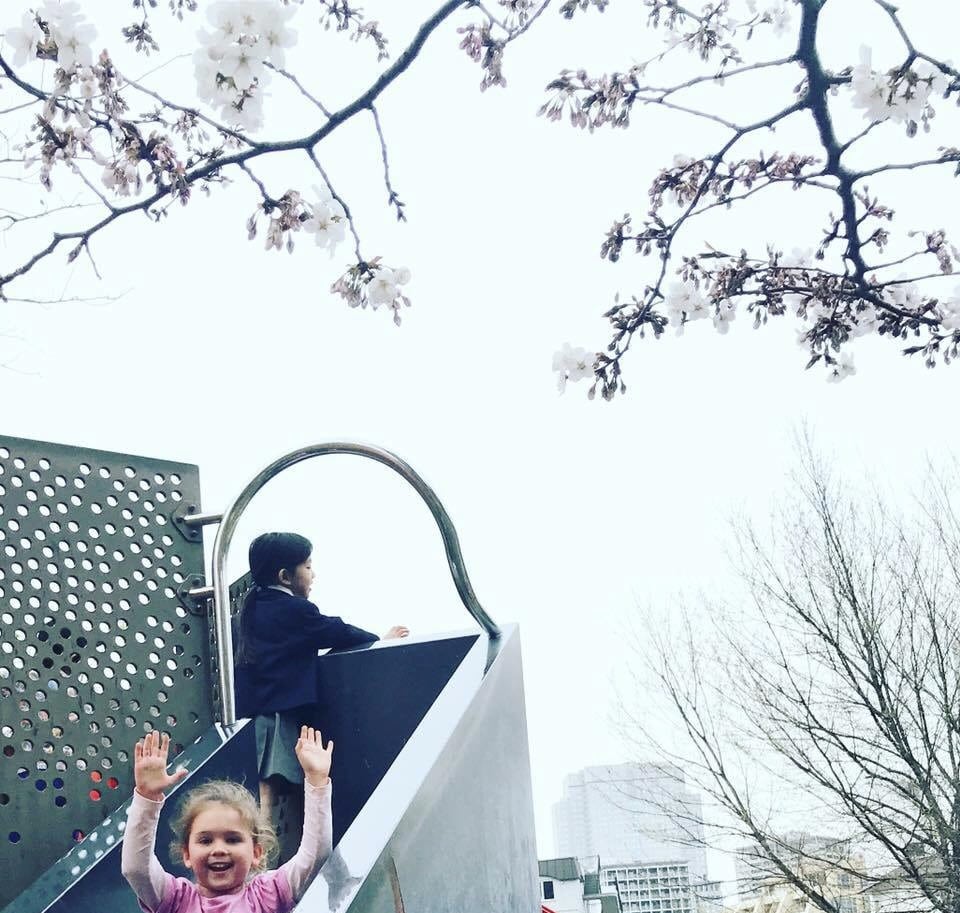
Once you settle in and start making friends, you will have some other people to call on when you need help (or just need to ‘borrow’ an onion.)
It took me a little bit of time to feel comfortable but I also found a babysitter – and now I don’t know how I would ever do it without her. She is part of our Tokyo family now and helps out a few times a week – especially when my husband is away and it also means that we can schedule frequent date nights and nights out with friends.
We were lucky enough that our babysitter worked with another family in our building who had left recently left Japan, but there are a few groups on facebook to help connect babysitters with families too. The group that comes to mind right now is the Domestic Help in Tokyo group. I also know friends that have used agencies for occasional babysitters and found them to be fantastic. I’ve heard good things about agencies called Chez Vous, Poppins and Carefinder.
Will I be able to give the kids lots of fresh fruit and vegetables?
I knew it would be more expensive but , yes, we do have access to most fruit and vegetables here.
And, like anywhere, you’ll find that it’s cheaper to buy food that is in season and farmers markets ( I love Farmers Market in Omotesando, written about in my Harajuk with kids post) and small, local fruit and vegetable stores are the way to go.
For example, when grapes or strawberries are in season we go crazy on them and then hold off at other times of the year – but, we kind of did that in Australia as well….
It IS more expensive here though – but it’s fruit and veggies so I’m happy to put our money in that direction.
I wrote a lot more about buying fruit in Japan here.
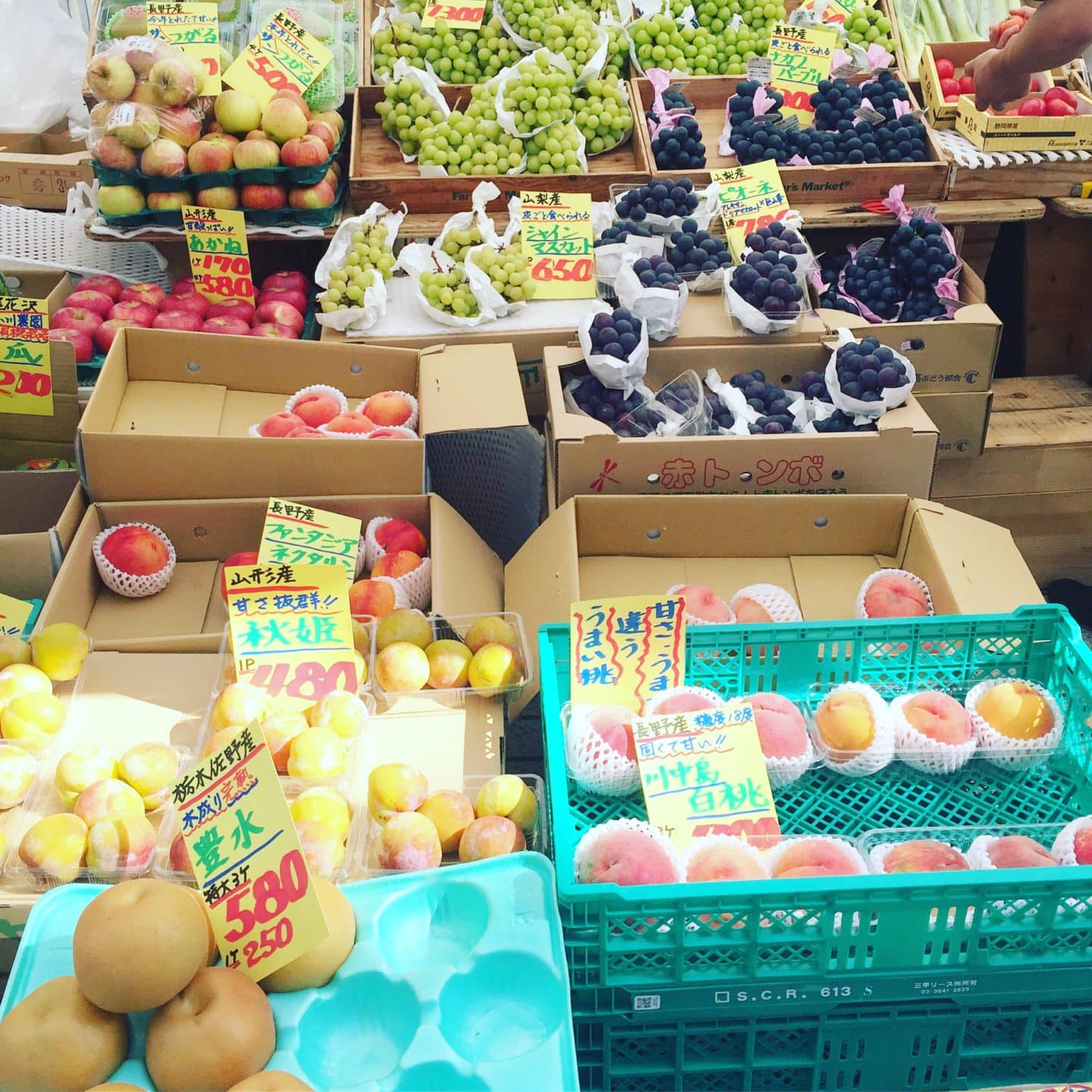
Oh and yes – you’ve probably seen pictures of the outrageously priced watermelons etc in Japan. Yes – that is true but that’s not at the supermarket. They are the top, top shelf special fruit and vegetables that are set aside for gourmet stores for wrapping and gifting to friends and colleagues.
If you want to see one of these shops for themselves, check out my Shibuya with Kids post here.
Extra tip: When cooking in Japan, it can be expensive to only try and cook the recipes from home. Try and learn a few Japanese recipes ( I recommend following @justonecookbook on instagram ) or, at least, until you find all you need at the right price …. I would go back to basics like casseroles and quiches etc.
Will my kiddies lose their sense of identity?
Like all expat children, and especially in a country where we look and sound so physically different to the locals, I was worried about my children’s personal sense of ‘where do I belong?’
And I can tell you now, that is the least of my worries.

If you ask my daughter, she says ‘Mummy is from Australia. Daddy is from Scotland. And I’m from Tokyo.’ But if you ask her if she is Japanese, she will giggle and say ‘I’m not Japanese, silly!’
She knows she’s from her Mum and her Daddy, from her Grandparents and connected to her Aunts and Uncles and cousins and best friends and our babysitter, even.
Our kids are very open to differences in others (aren’t all kids, really – unless they’ve been taught otherwise?). And I LOVE that so much!
I had a hilarious conversation with my little girl last year who had been invited to a birthday party. We were wrapping up her present at home and our babysitter asked ‘Who’s party are you going to tomorrow?’ and I answered ‘Allegra’s party. She’s a little girl from Italy’ … to which my daughter jumped in a corrected me immediately ‘No, Mum! She’s not from Italy!!! She’s from SCHOOL!!!’
All in all, my kids seem to be completely fine with drawing identity from family ( I think this is particularly important to us as my husband and I are not from the same part of the world.)
I honestly feel that because of this adventure, our immediate family of four is a particularly tight unit. Even tighter than if we hadn’t ever moved at all.
We all come as a set. We help each other. We go places all together.
Would my children be the loudest children in Japan!?!!!!!!!
I actually had so much to talk about re: this matter, that I wrote a whole post on how I (sometimes) manage with noisy kids in Japan.

AND.. What about the language stuff?
And lastly, I must touch on the language part because -even though I’d lived in Japan before (although never with children) among the newbies just settling in to Tokyo this is, understandably, a big cause of concern.
The answer is … (and this is slightly controversial because many people will tell you that they have lived here for a gazillion years without speaking Japanese) … you can get by but will your shopping choices, friendship groups and general ease when getting about be slightly limited without it? A little bit – Yes.
But, Tokyo is, by far (except for the snow fields in Hokkaido in snow season perhaps) the most international part of Japan.
You will still have the most extraordinary time without being able to say more than a few words.
BUT if you’re going to live here life is going to be SOOOOOOOOO much easier if you start with some lessons and then use what you’ve learnt that very day and put it into action.
I do meet so many Mums and Dads who have been here for a few weeks and are SO hard on themselves though. They are embarrassed to say that they still haven’t picked anything up. Of course you haven’t, silly! You just got here!!!!!! And guess what? Everyone else is in the same boat.
Can I let you in on a little secret? Unfortunately, hardly anyone really tries to become conversational so even if you start with the basics as you go? You’re soooo far ahead of the game and you’ll reap the rewards (and the positive praise) almost instantly.
I highly recommend making sure your teacher is working for you. I meet too many newbies who say they just walk into their lessons and say ‘I just don’t know anything!’ and the teacher just starts with some vague Japanese version of ABC type basics but then… they won’t be used and then they will be forgotten (because.. let’s face it… busy Parents don’t have time to review and revise every time, right?)
I recommend something more specific like “Help me practice how to greet the teacher when I pick up my kids from school?” or “How do I tell the taxi driver that I’ll be making two stops?” or “I’m making a cake. How do I ask ‘where is the icing sugar?’ at the supermarket?”
That way you will have to use it by yourself afterwards and the results will pretty much show you if your message got across or you need to practice more.
I’m a very immediate results driven person so I think this way of learning really helps me. Then, when it does work? I feel like a rocking Japanese bilingual superhero and I want to try something else.
I actually wrote a whole blog post about how I would go about learning Japanese if I was just starting from scratch now…
I also wrote language tips for taking a taxi, shopping, different ways to say thank you, being nice to another Mum in Japanese and advice for tricky situations.
I would love this post to be a constant work in progress and I would love to know what concerns you either had/have before moving to Tokyo?
Please do let me know xxx

